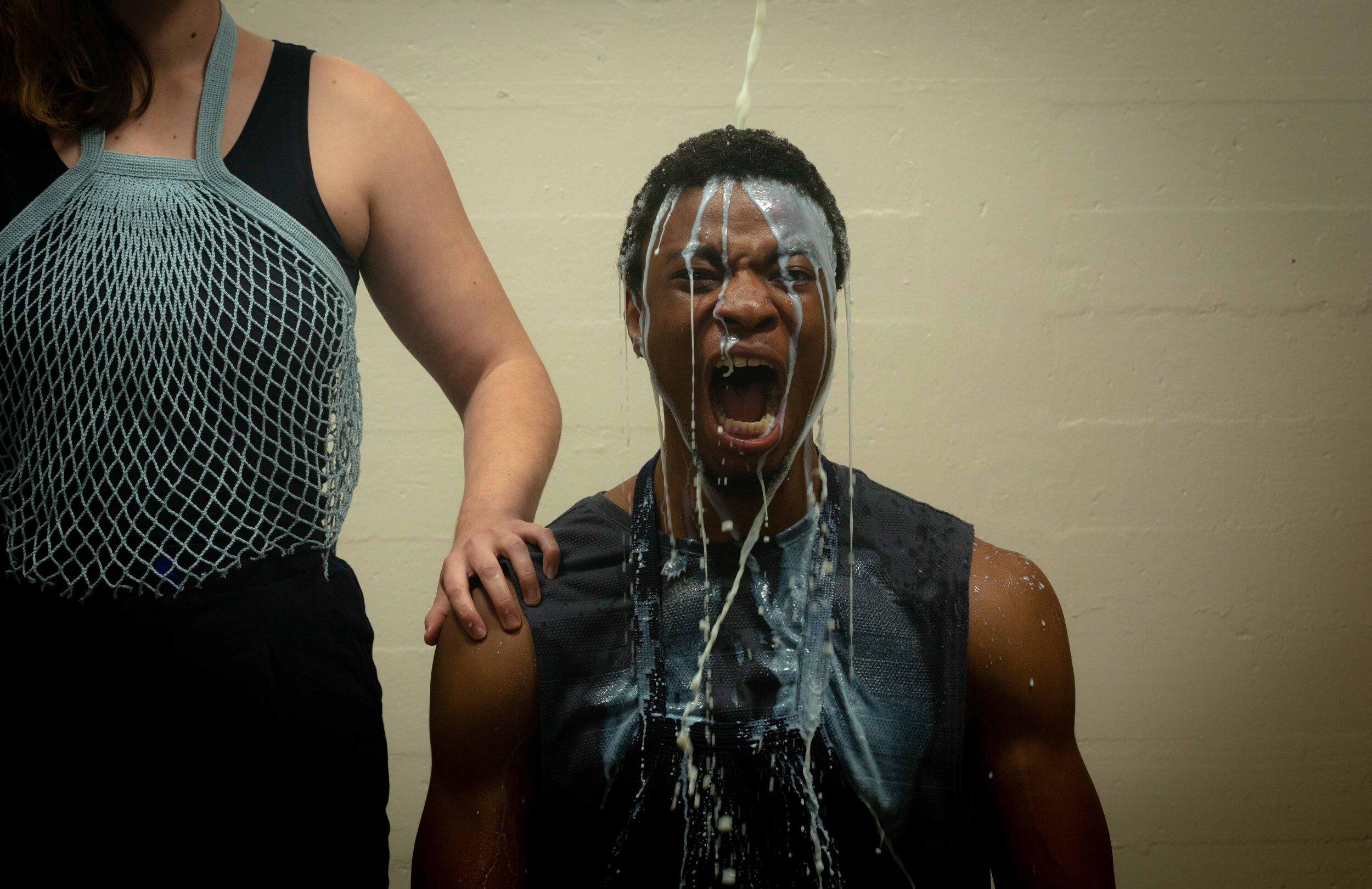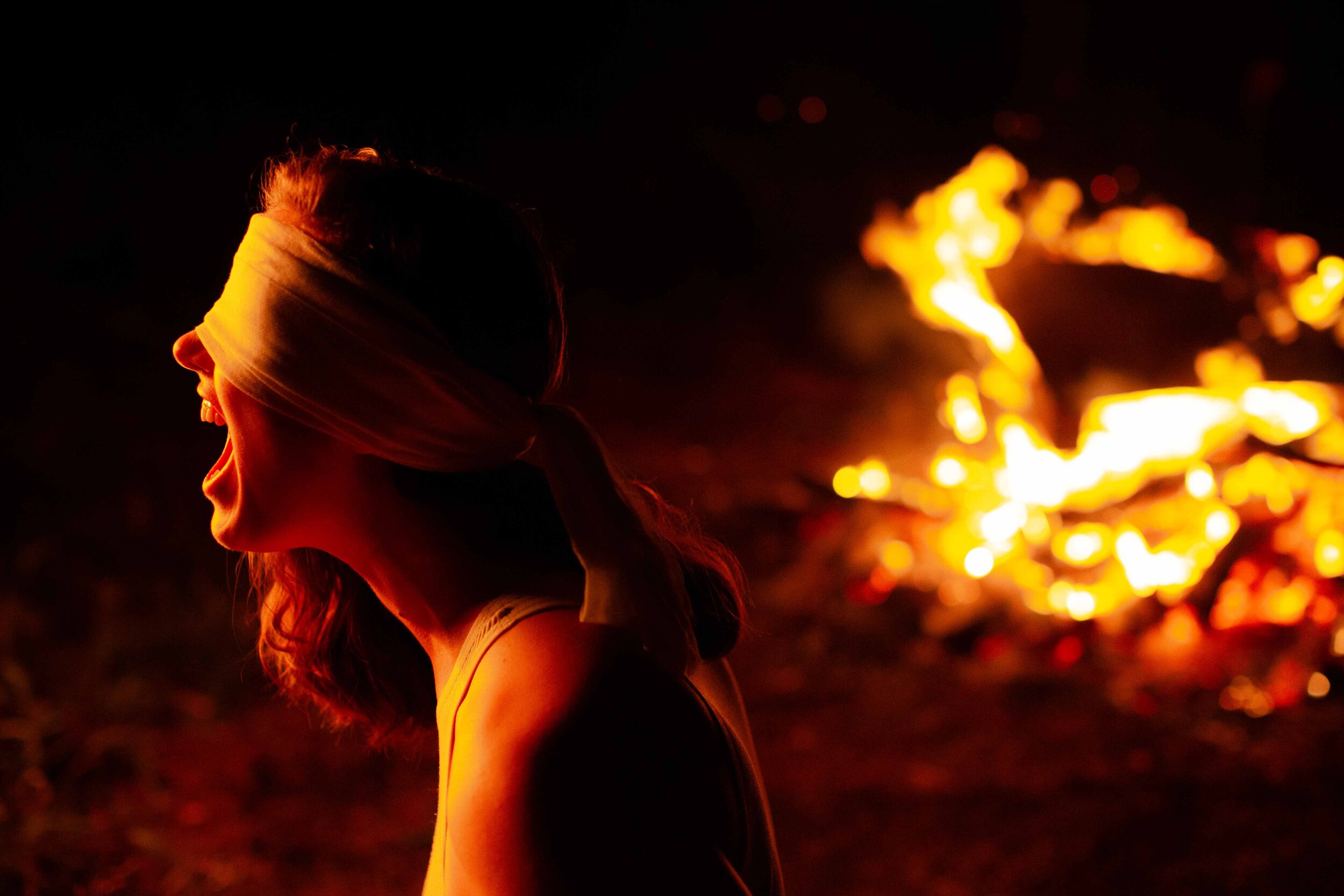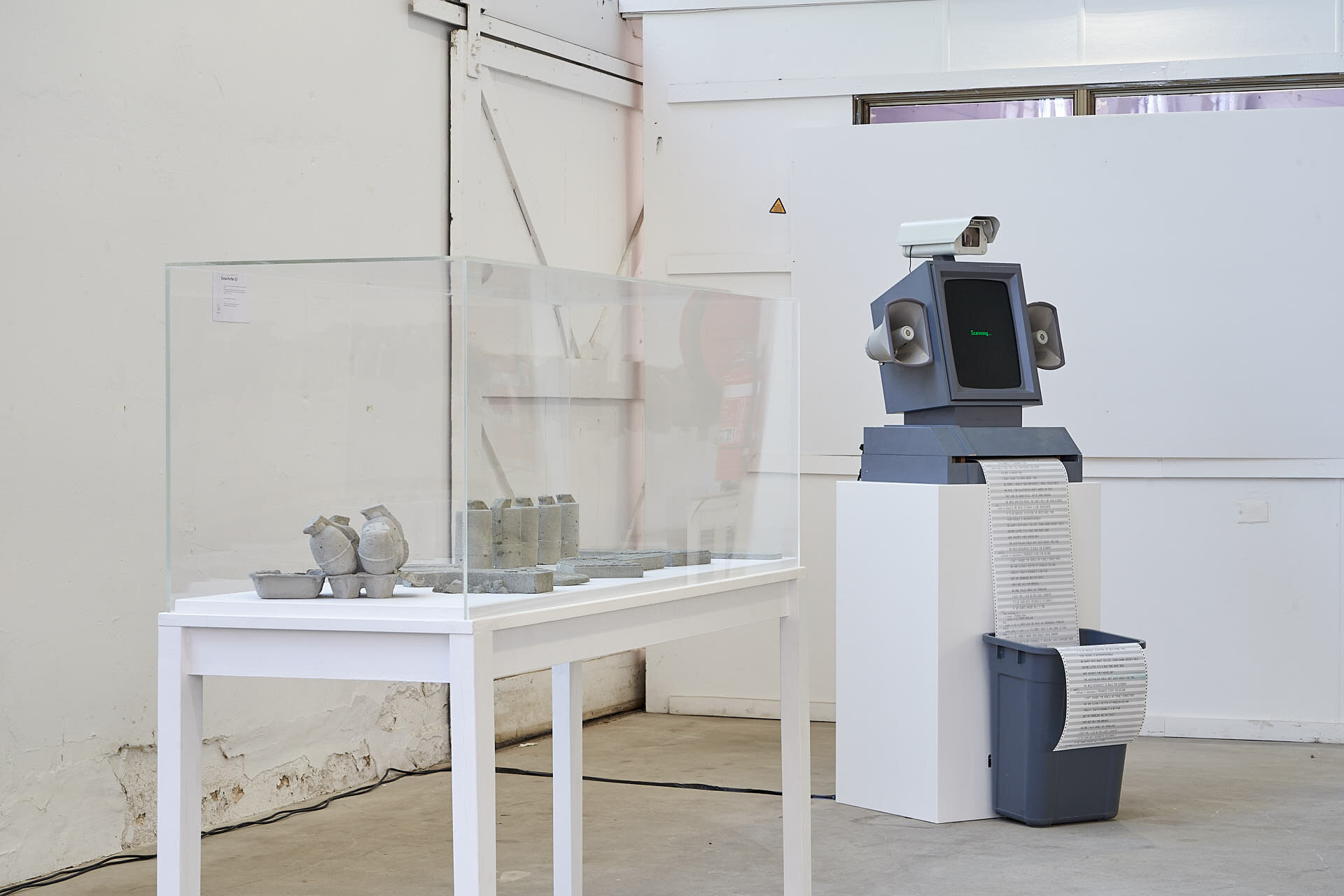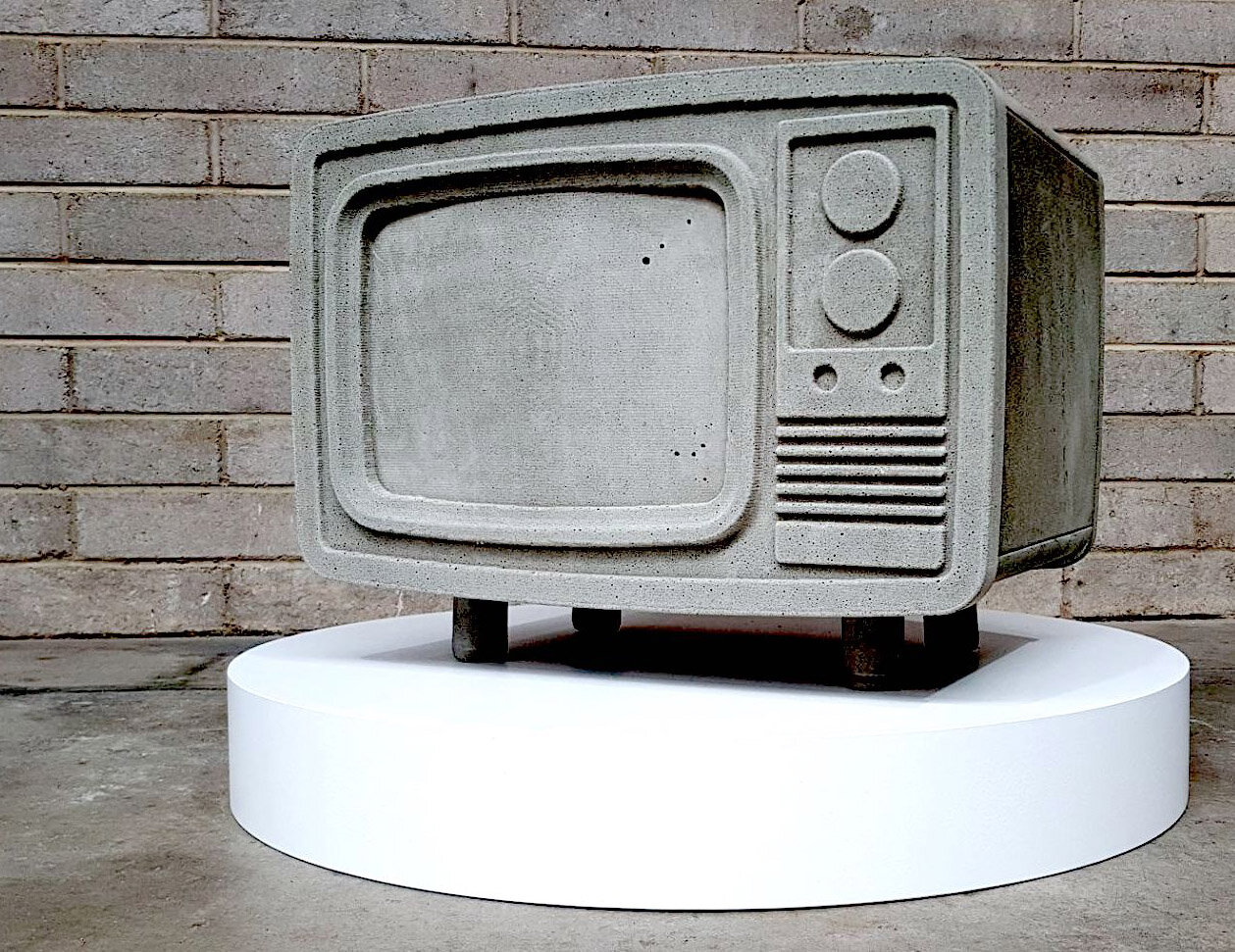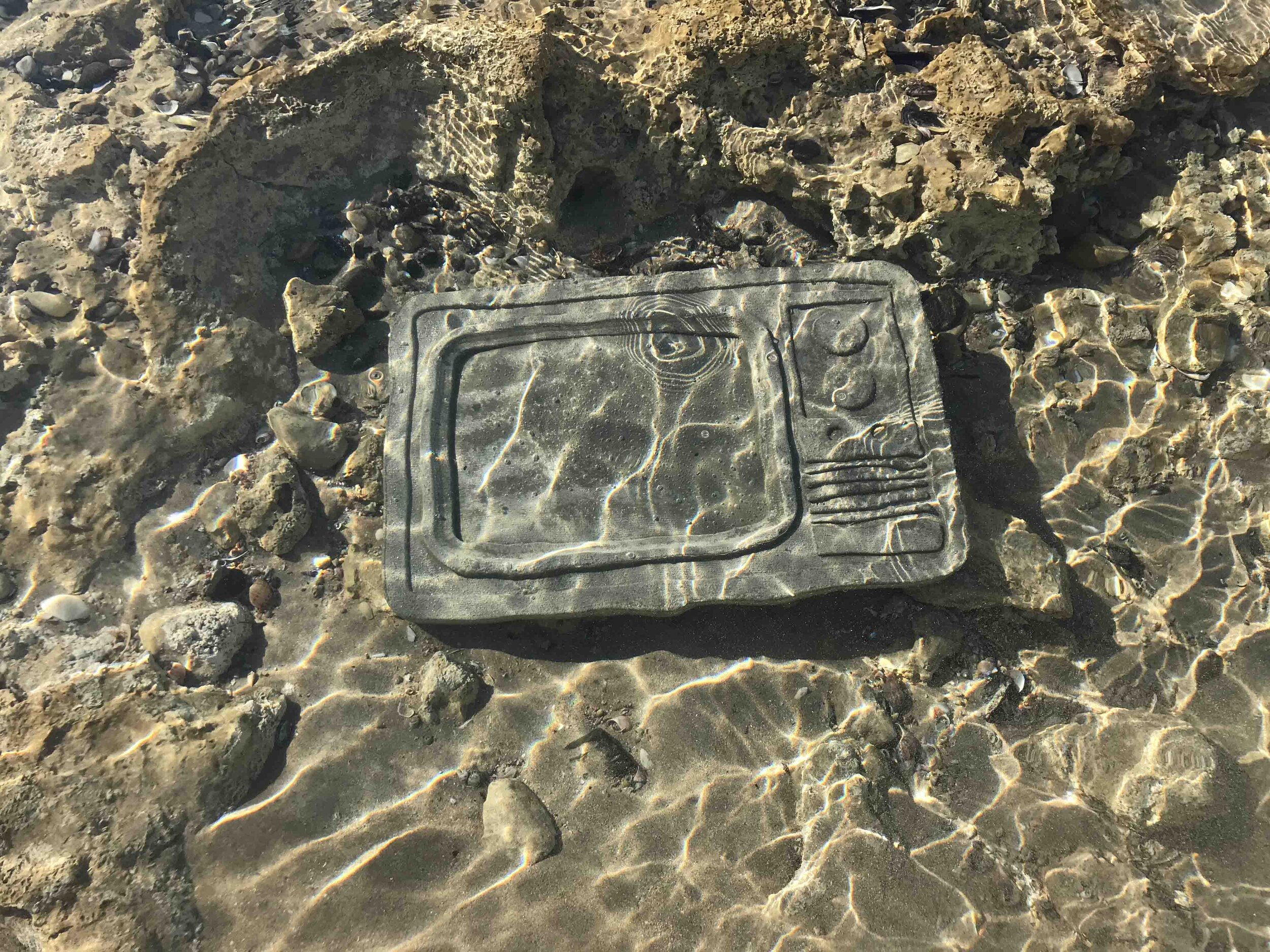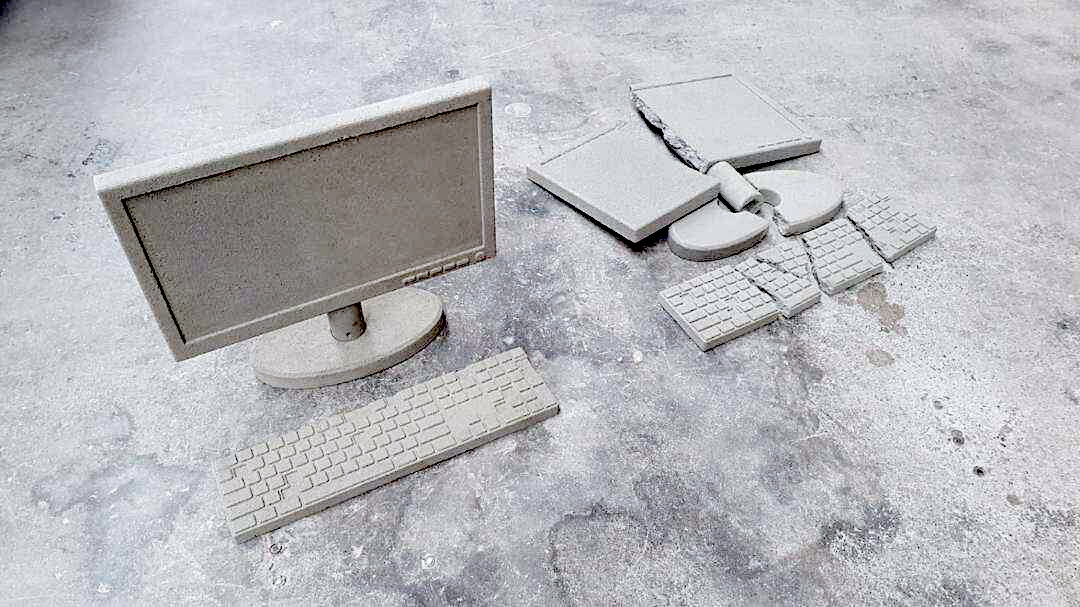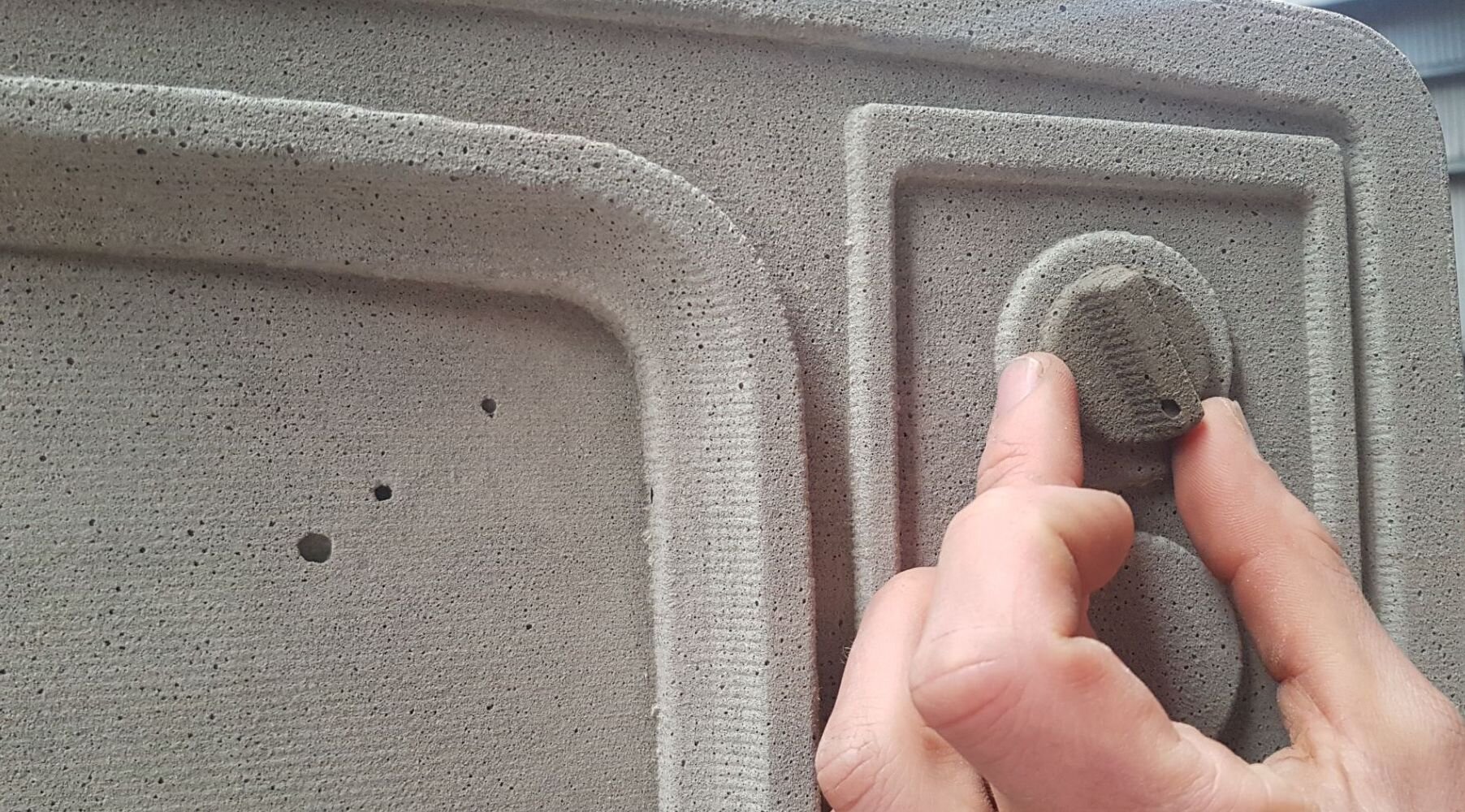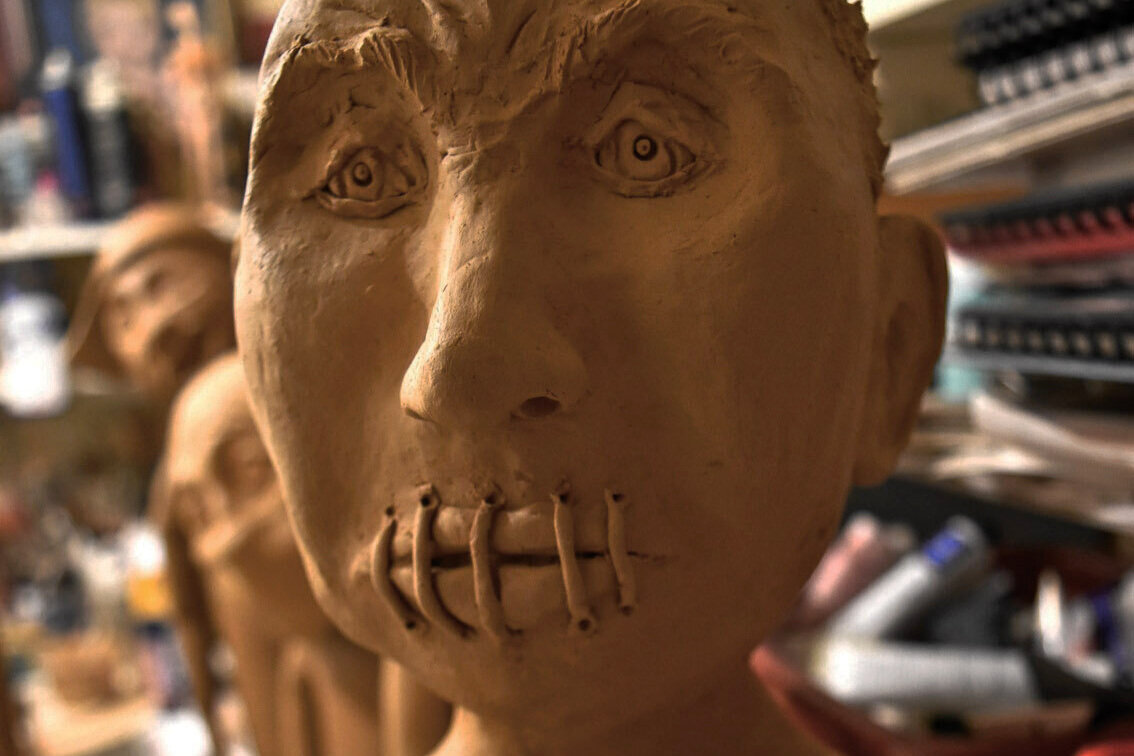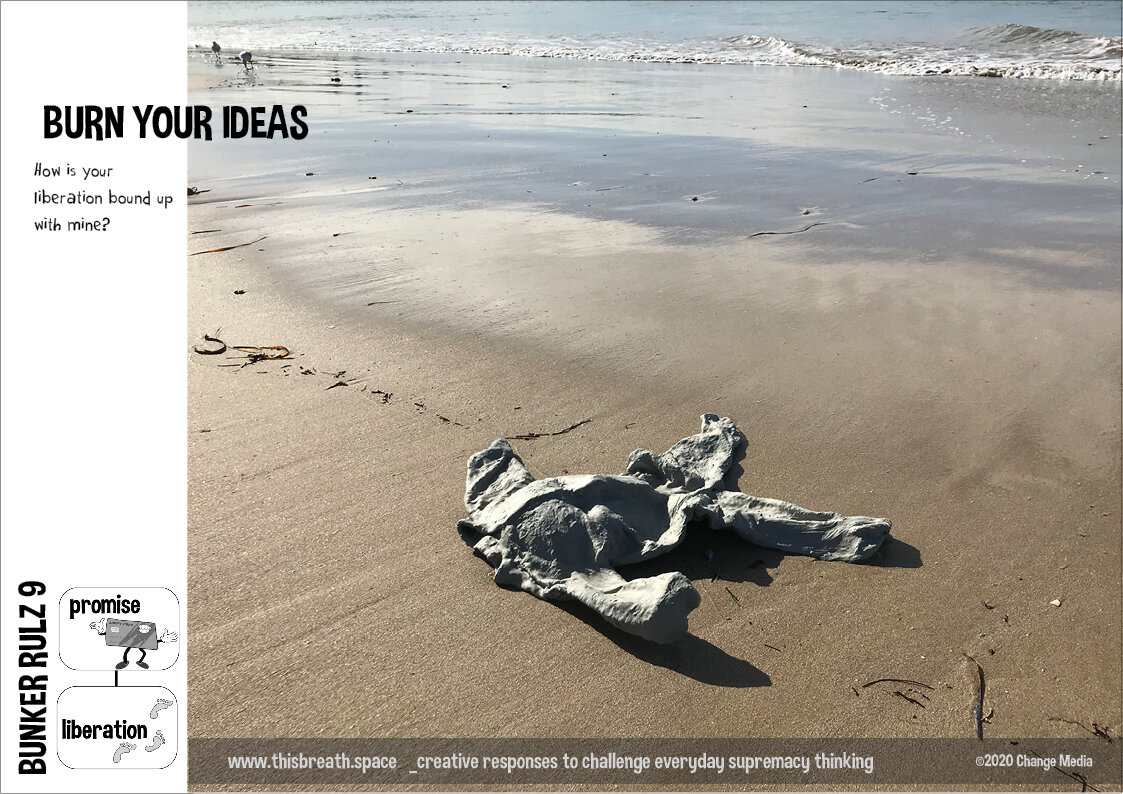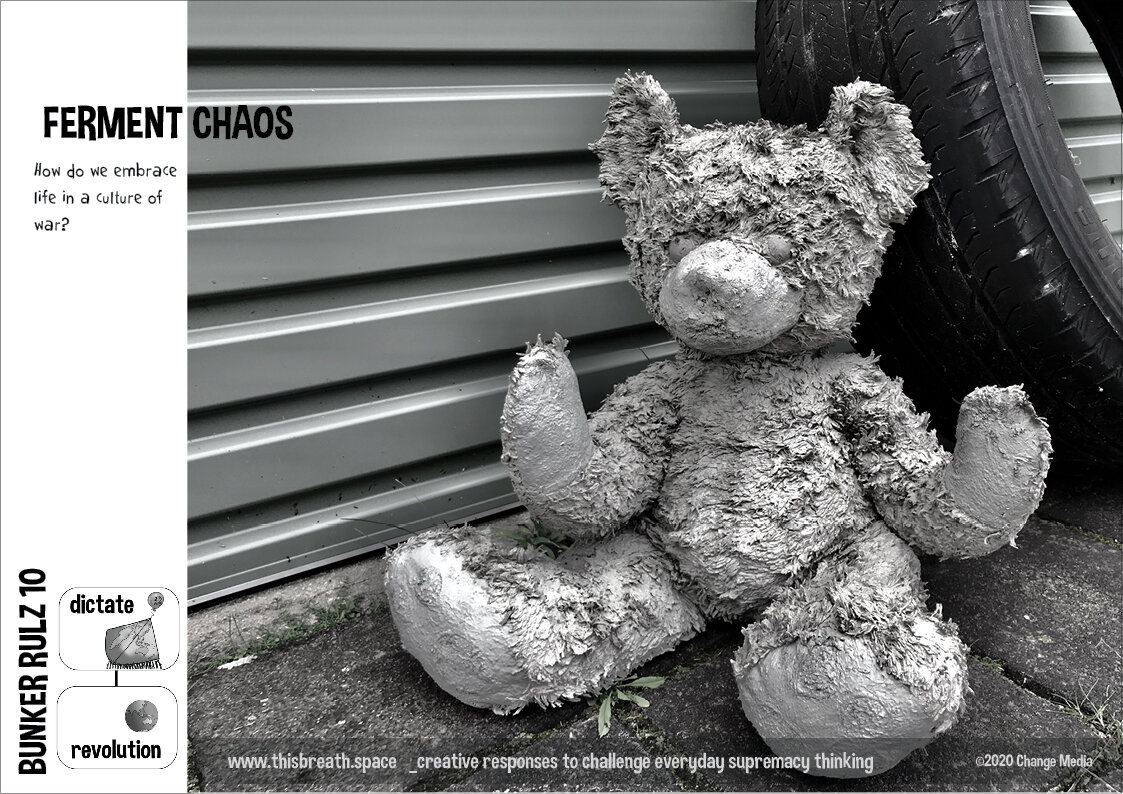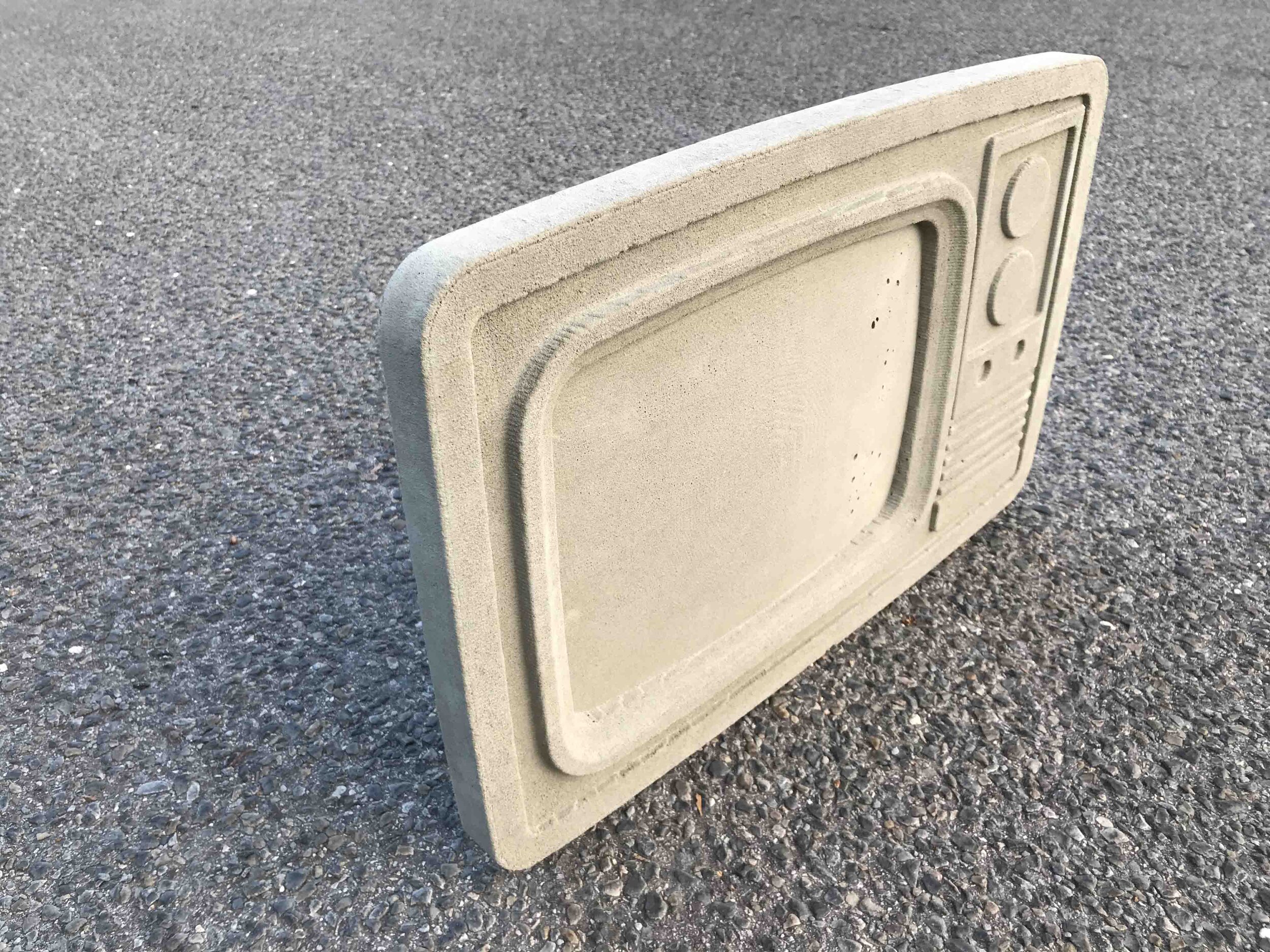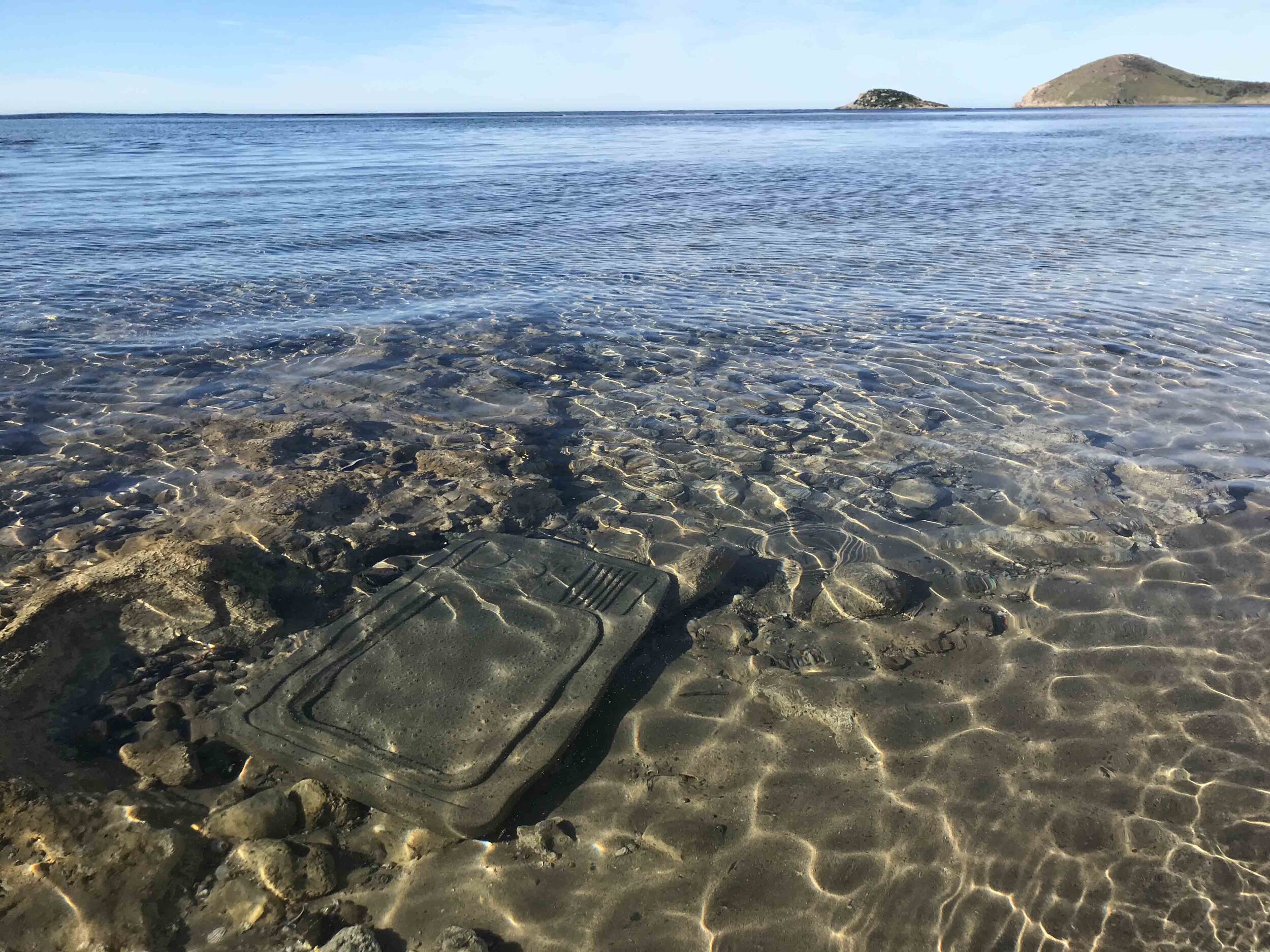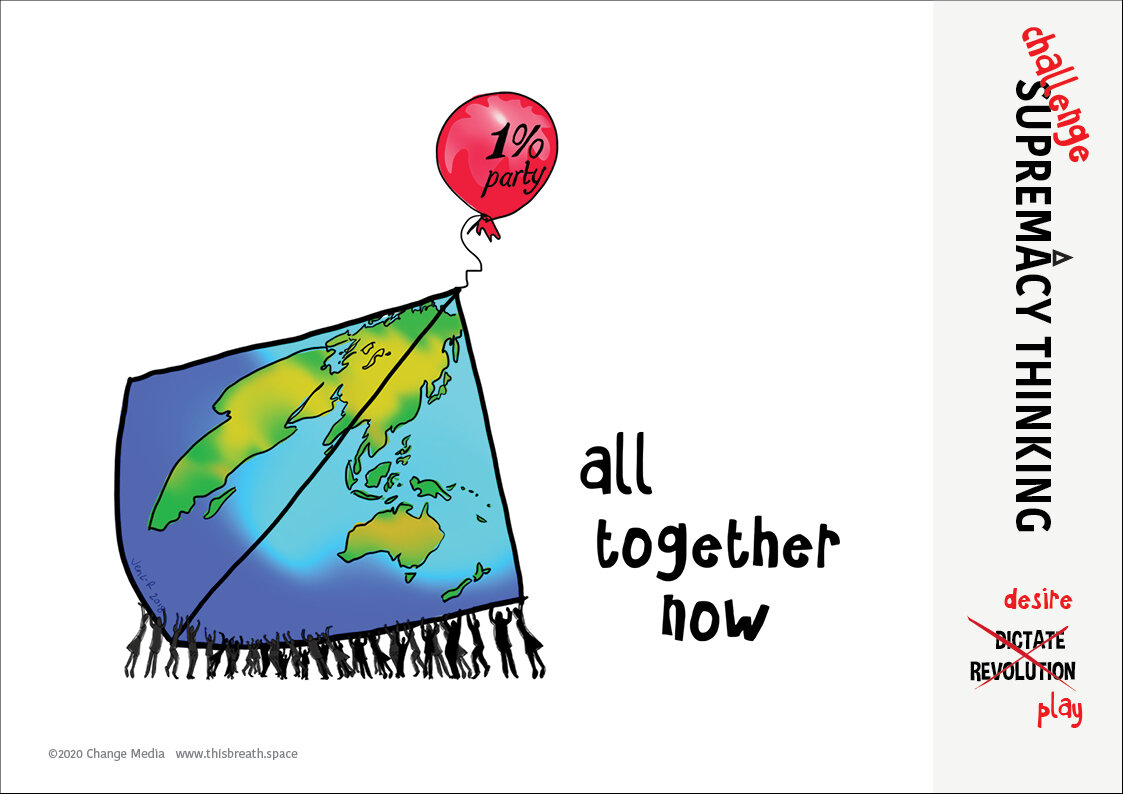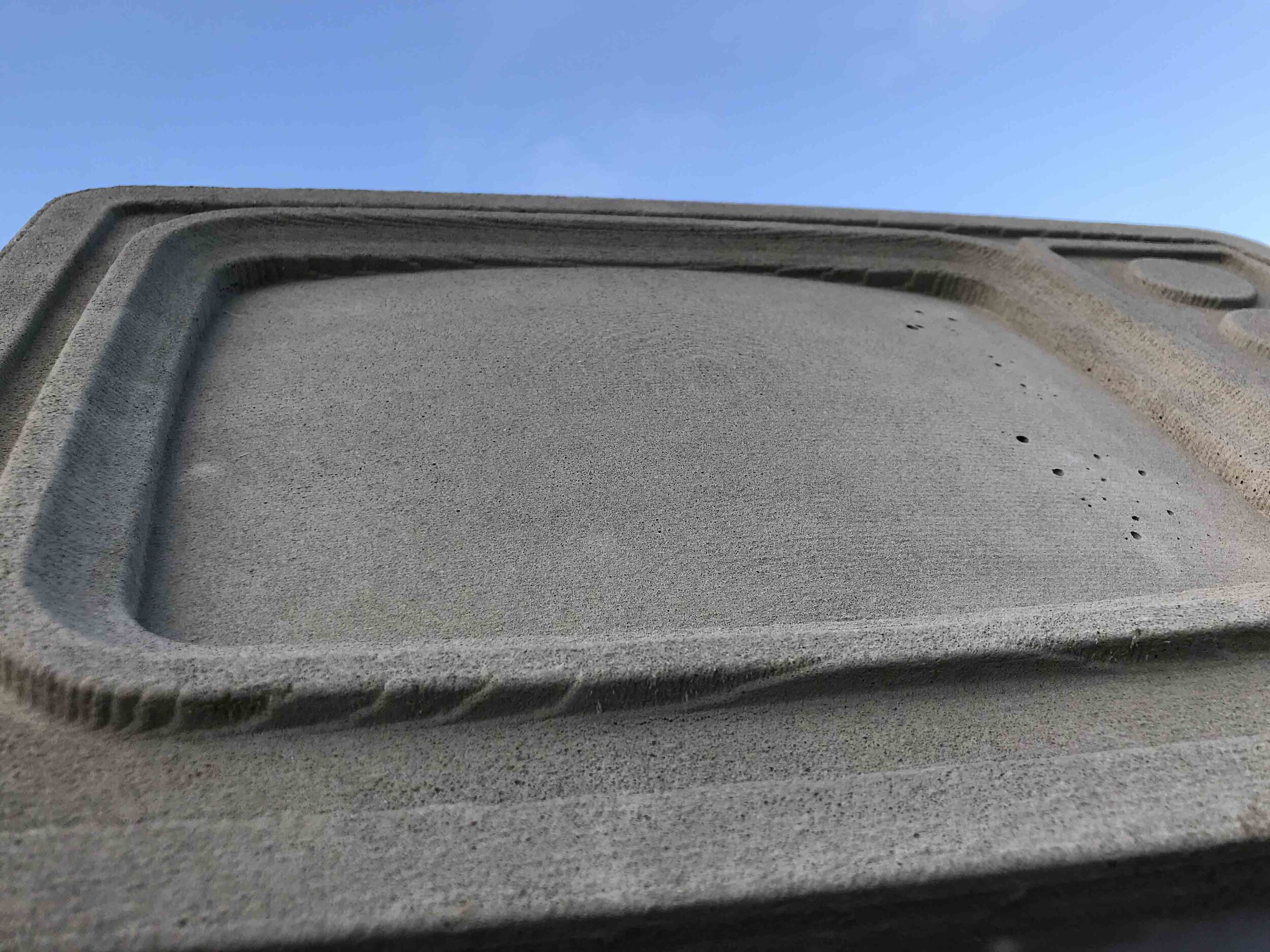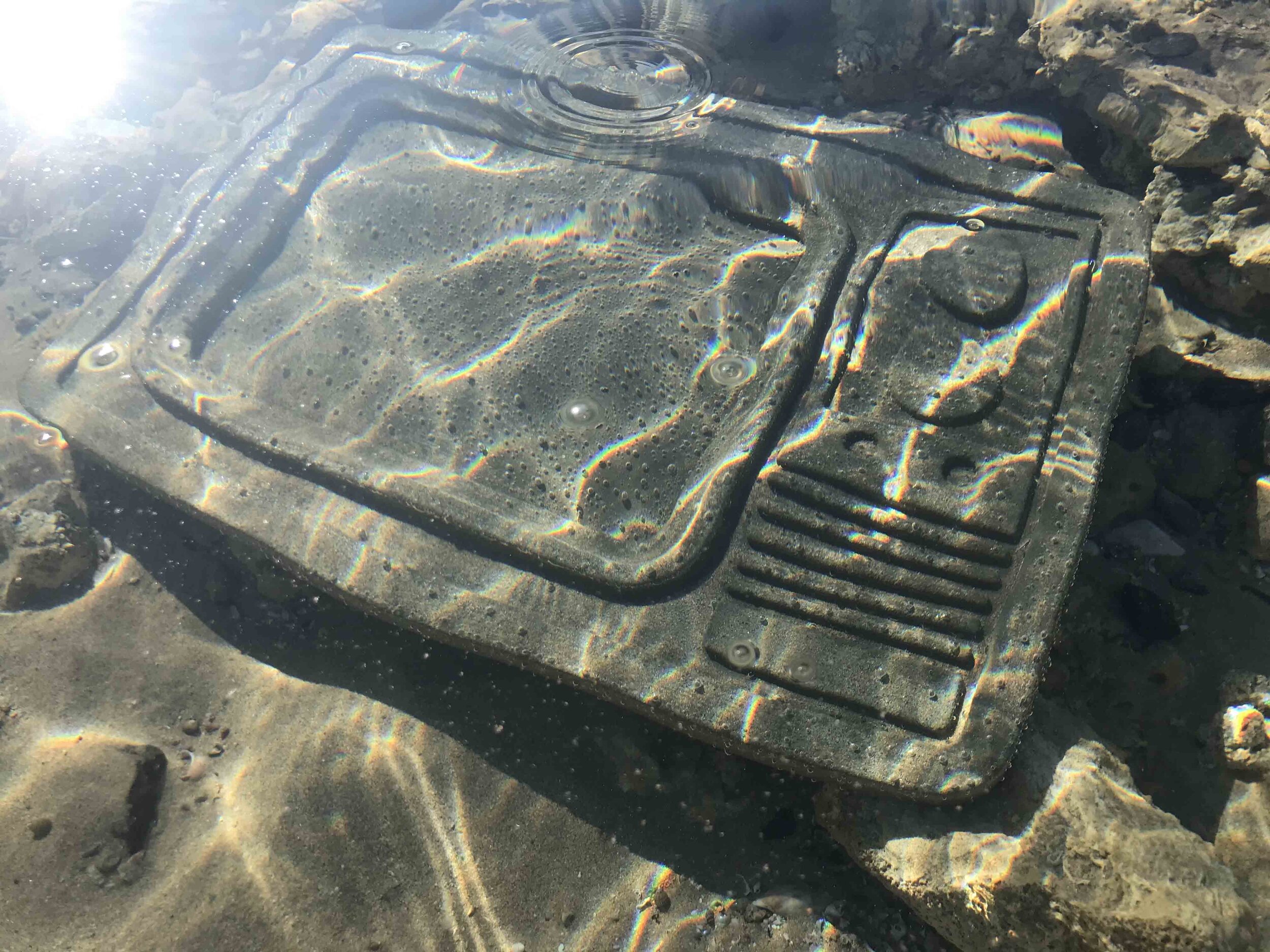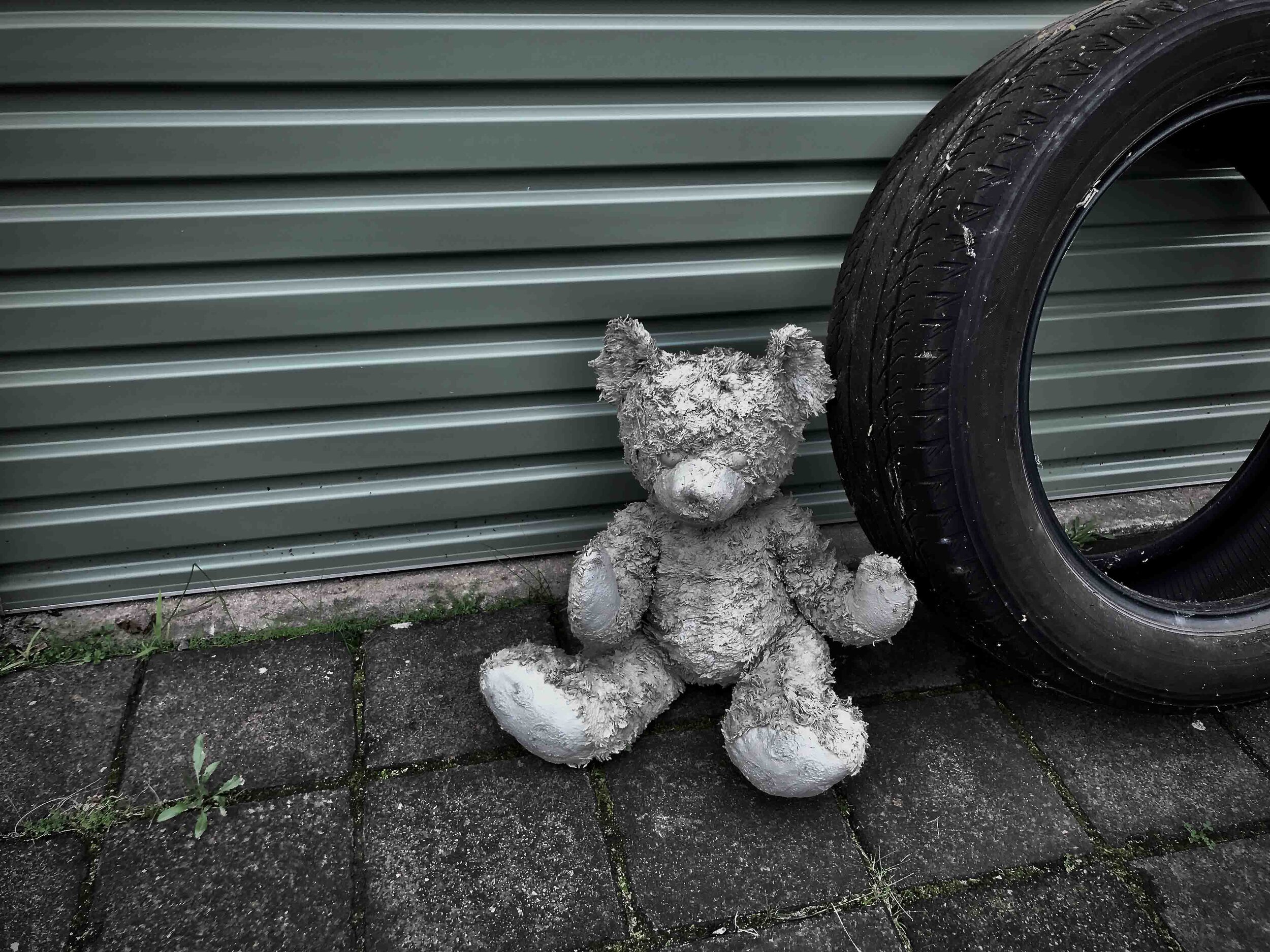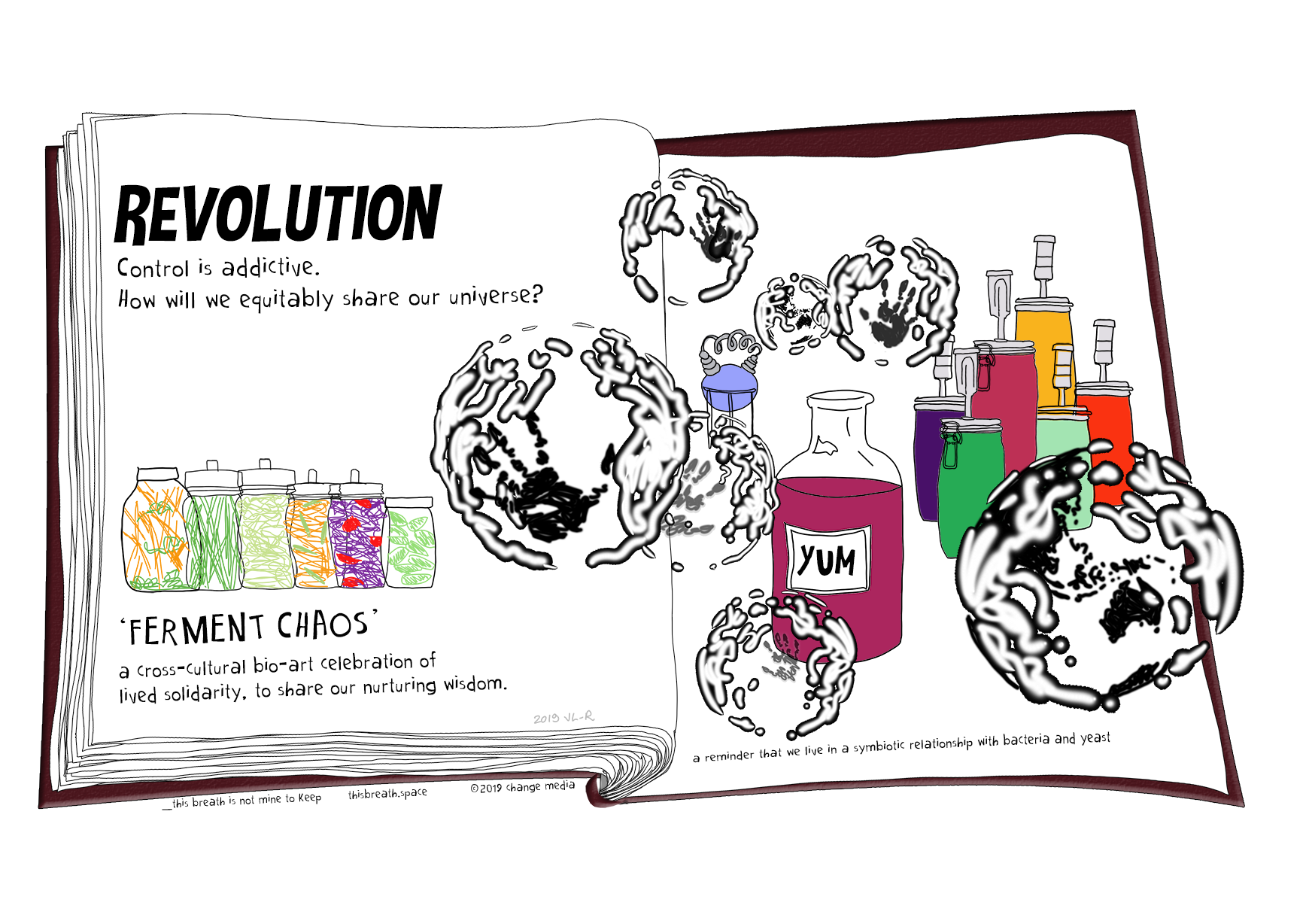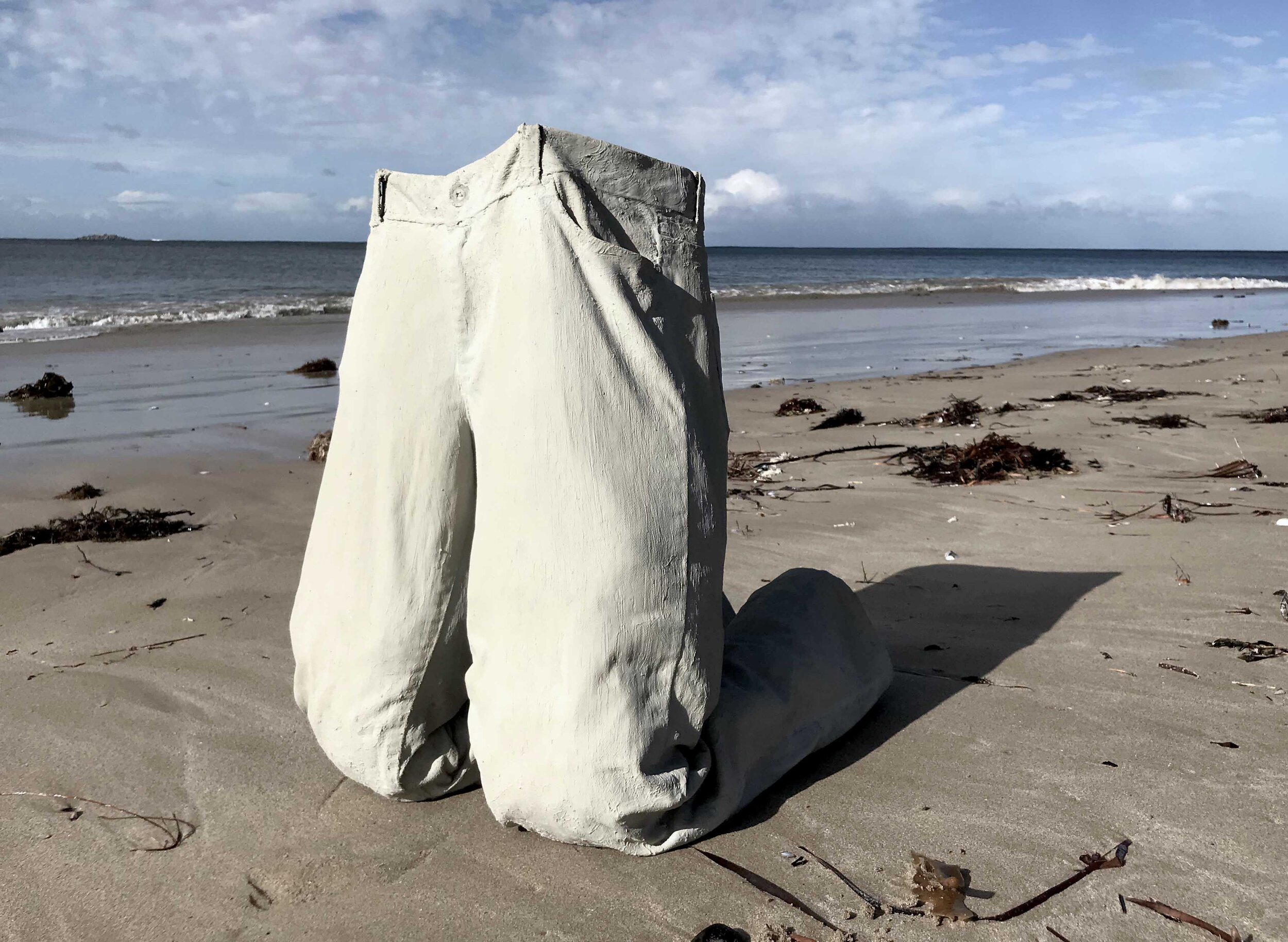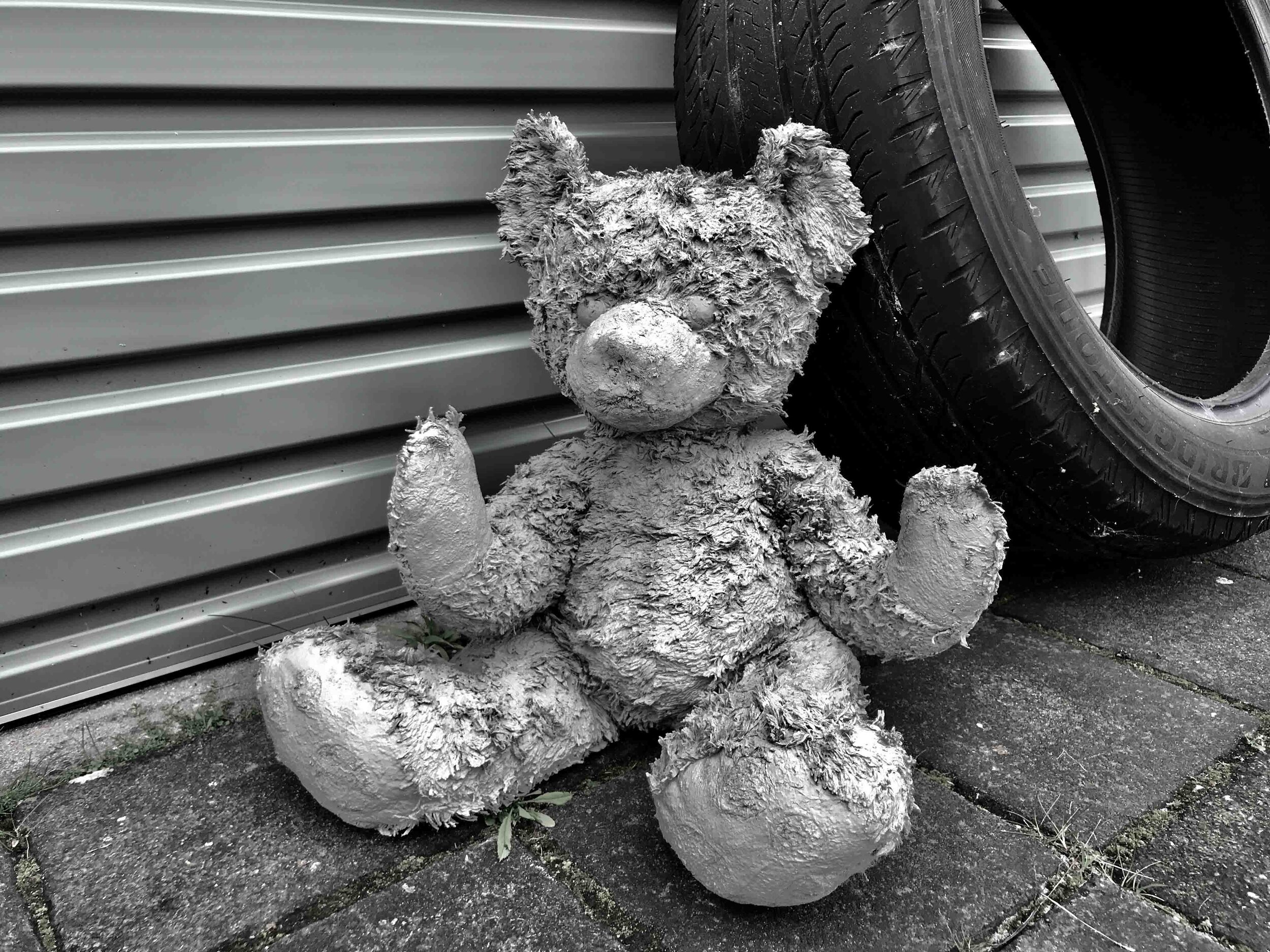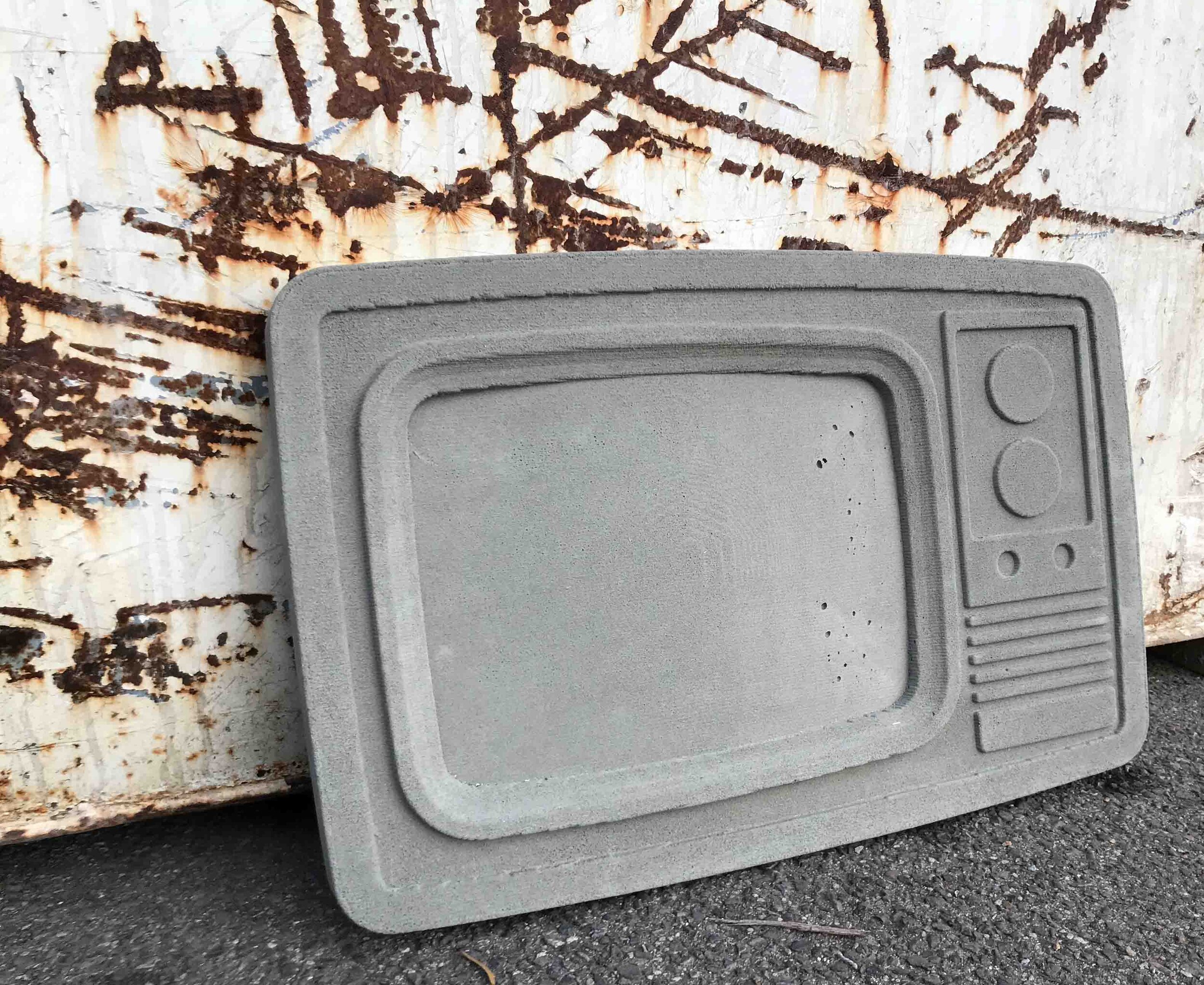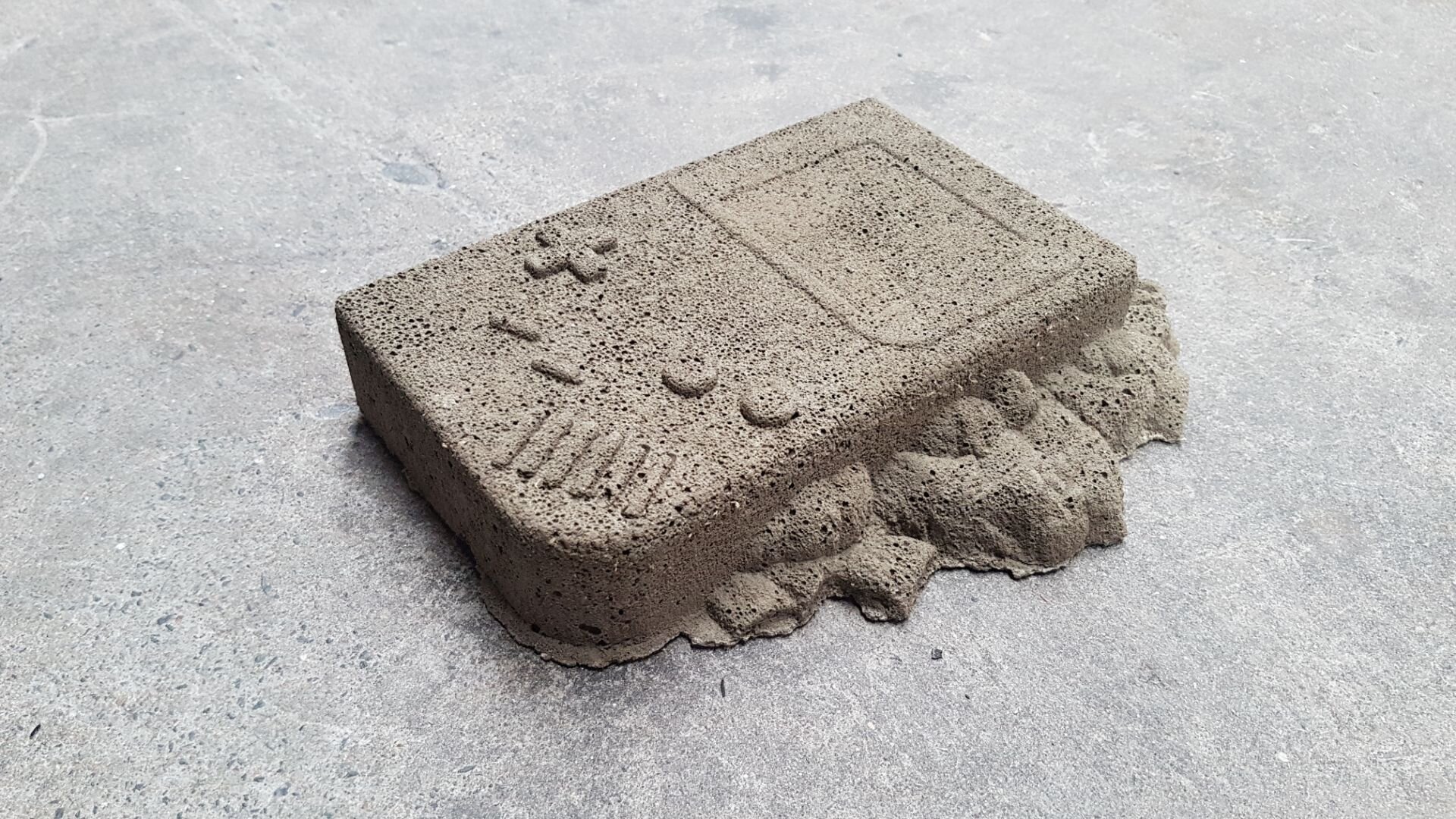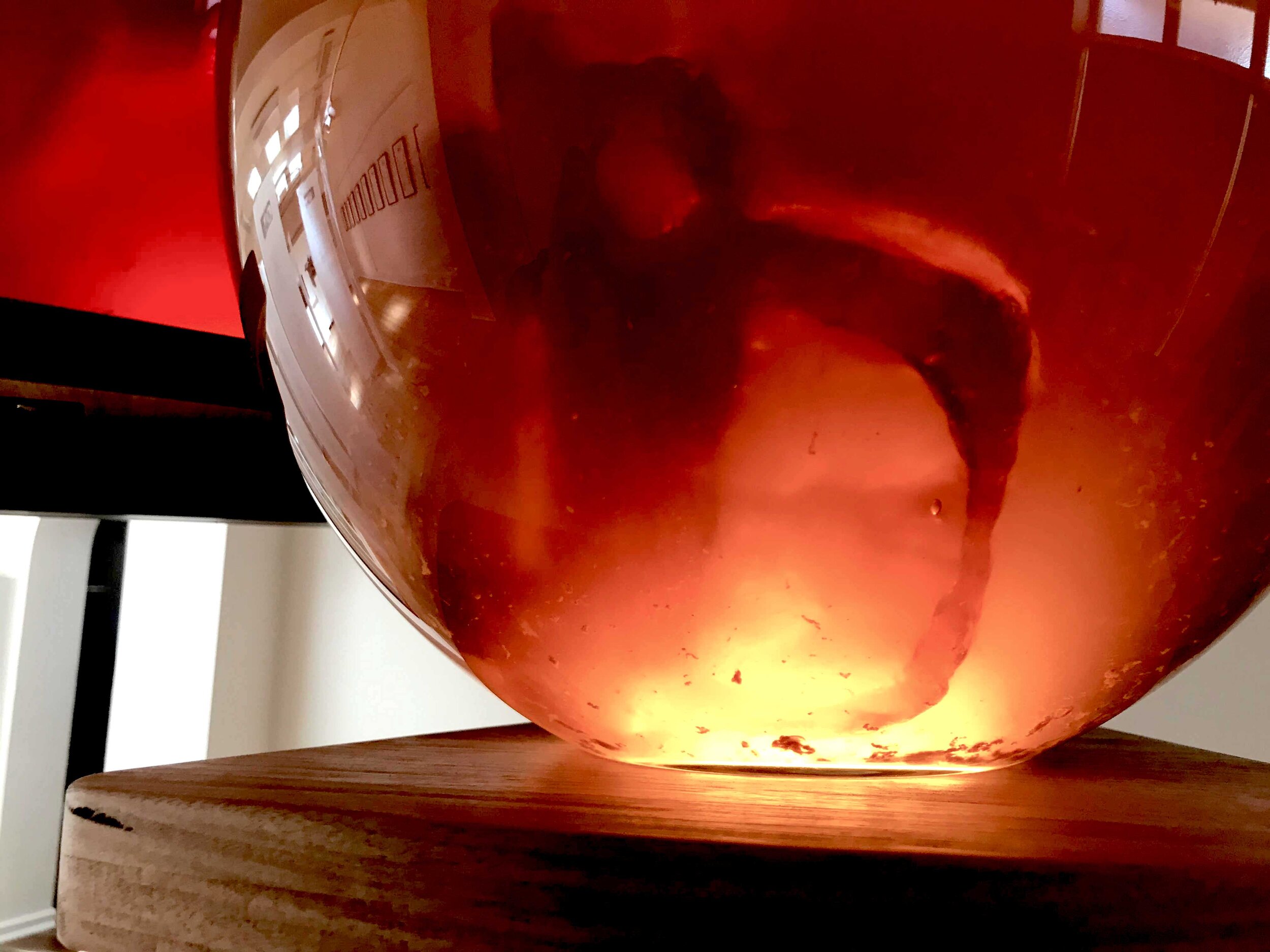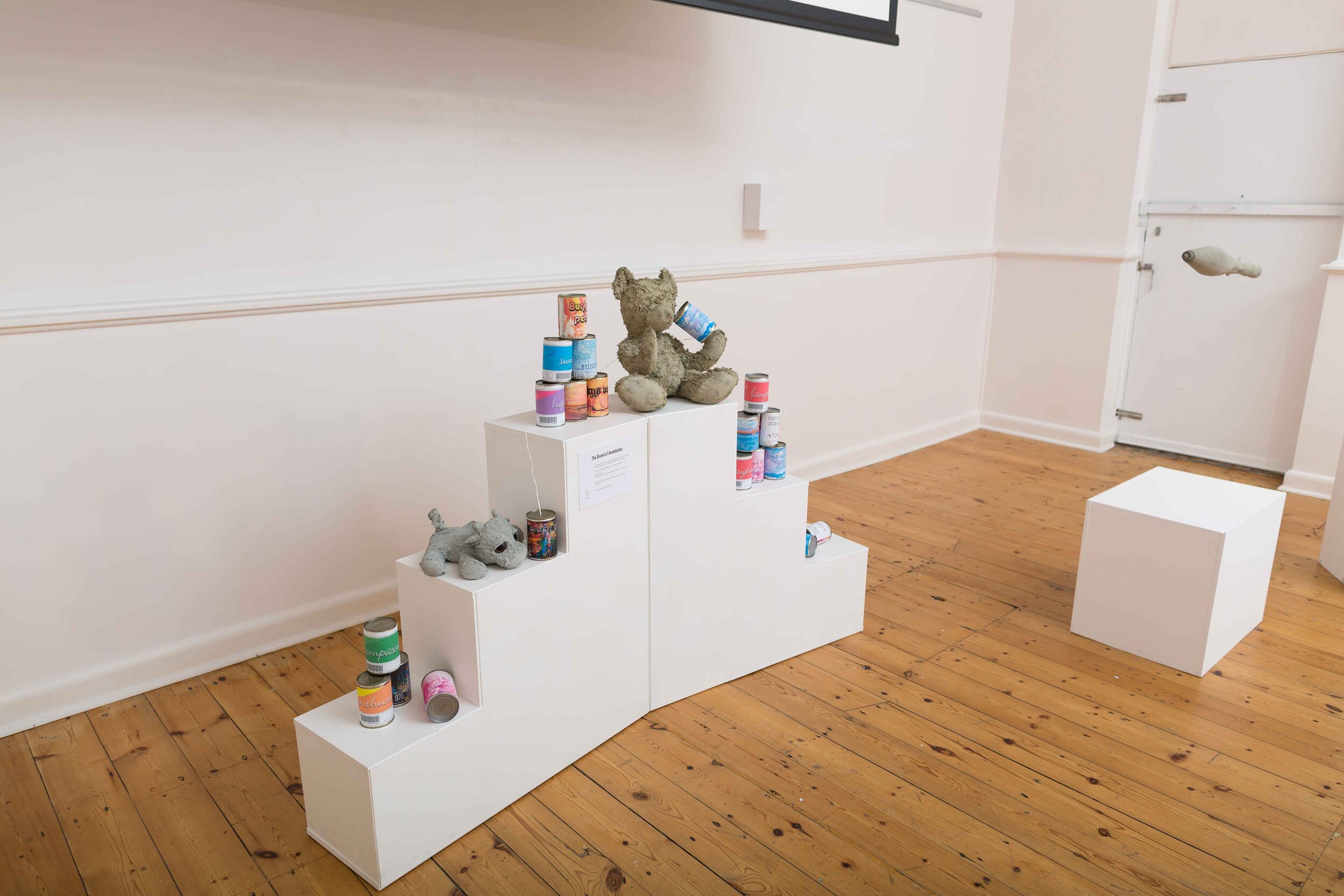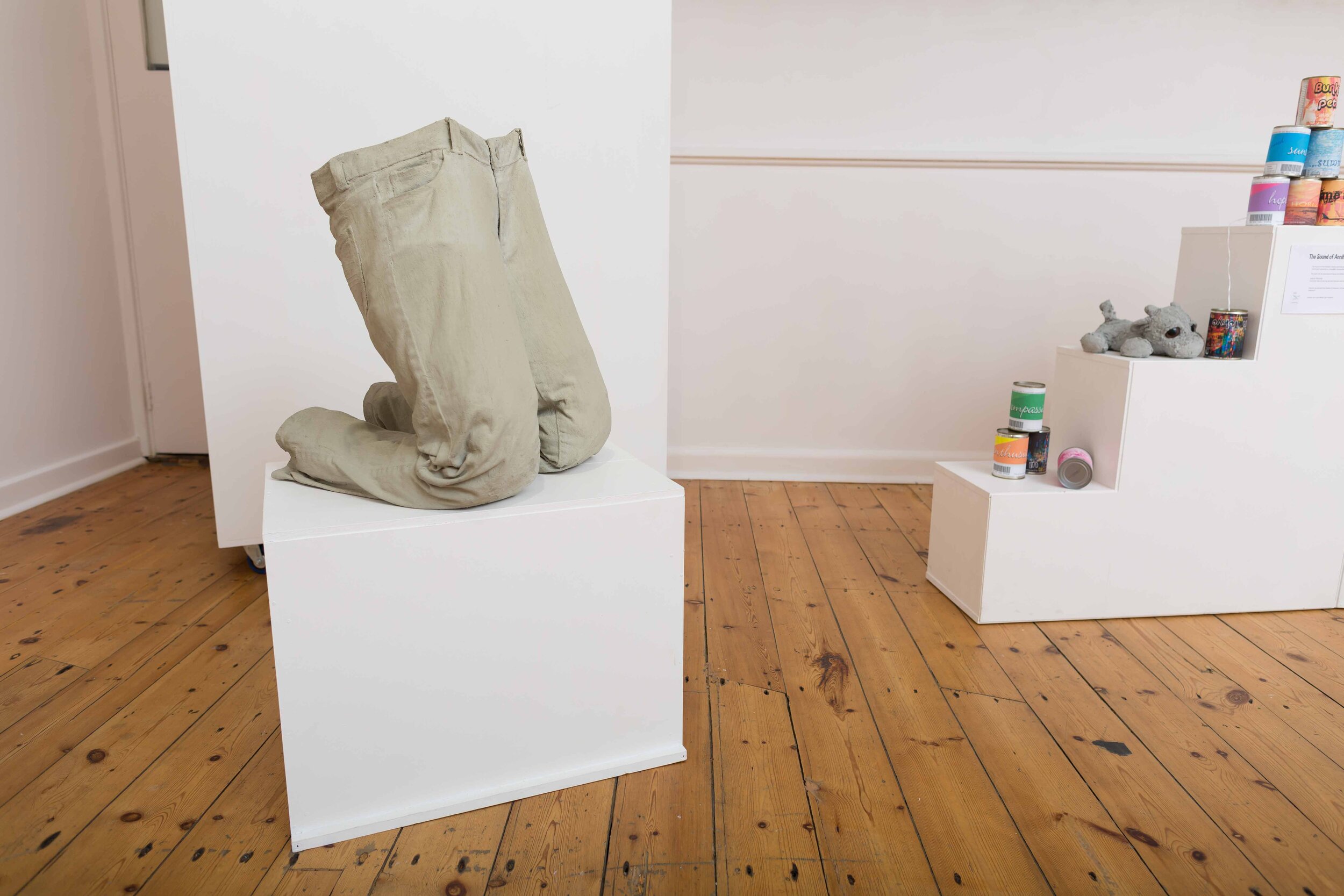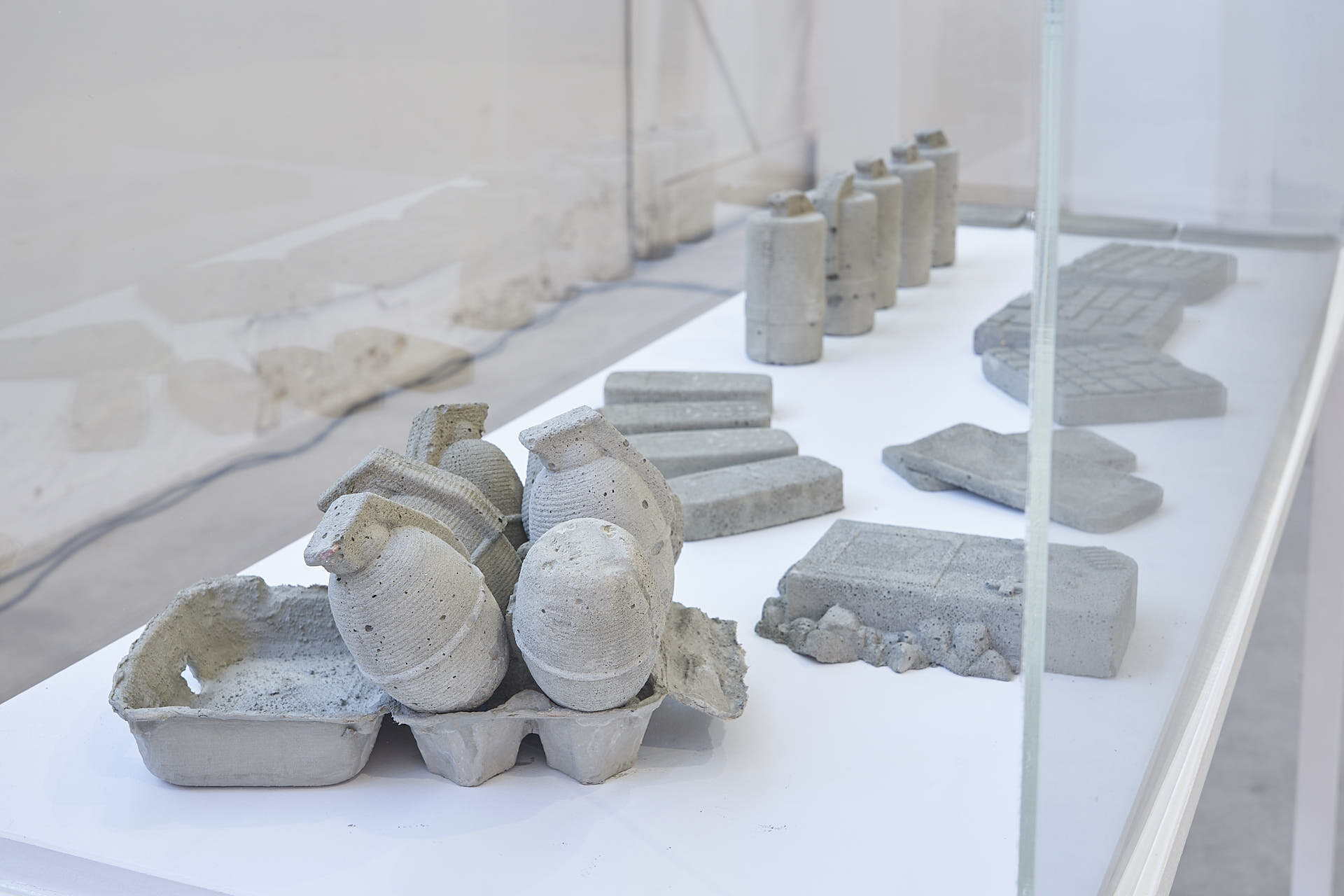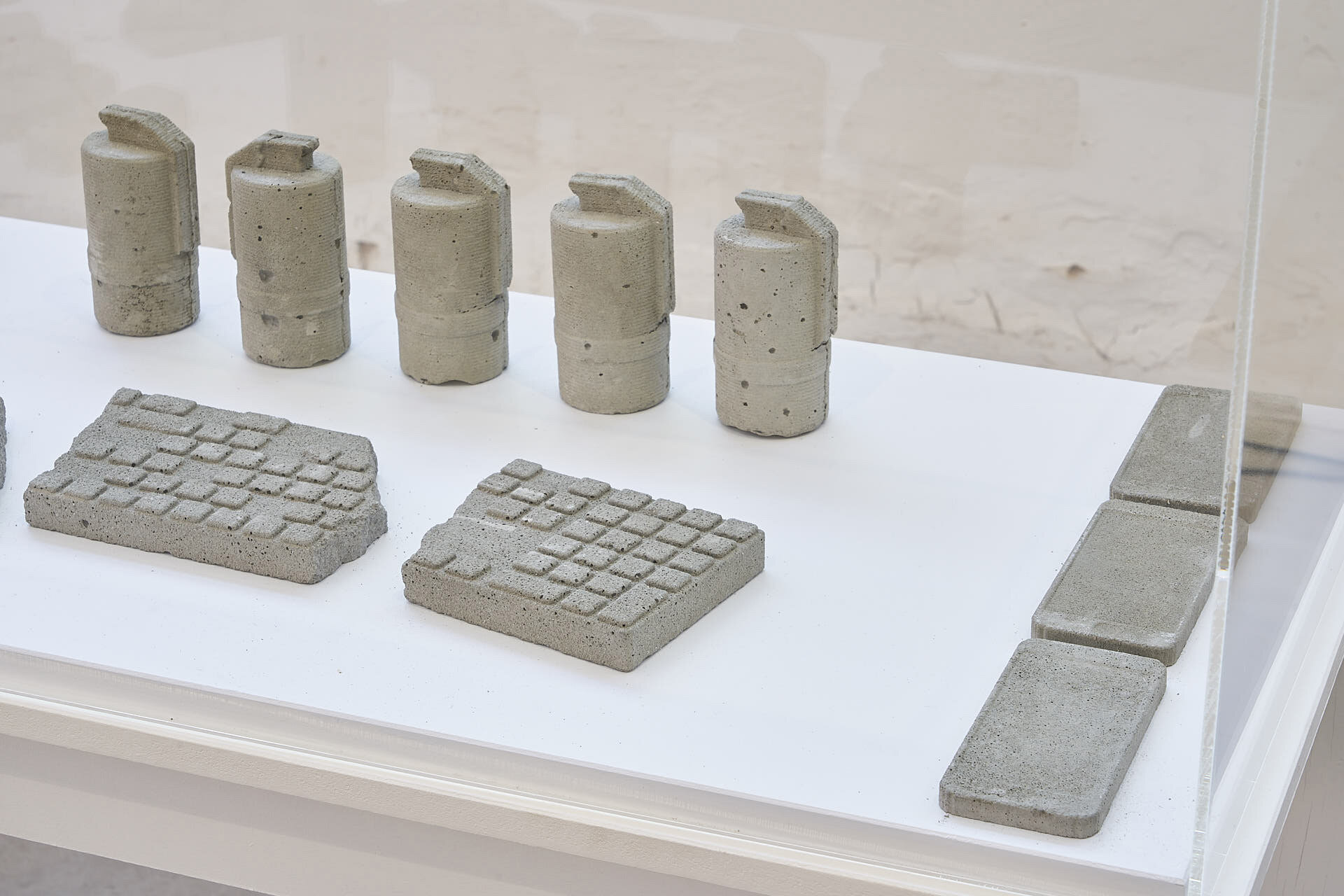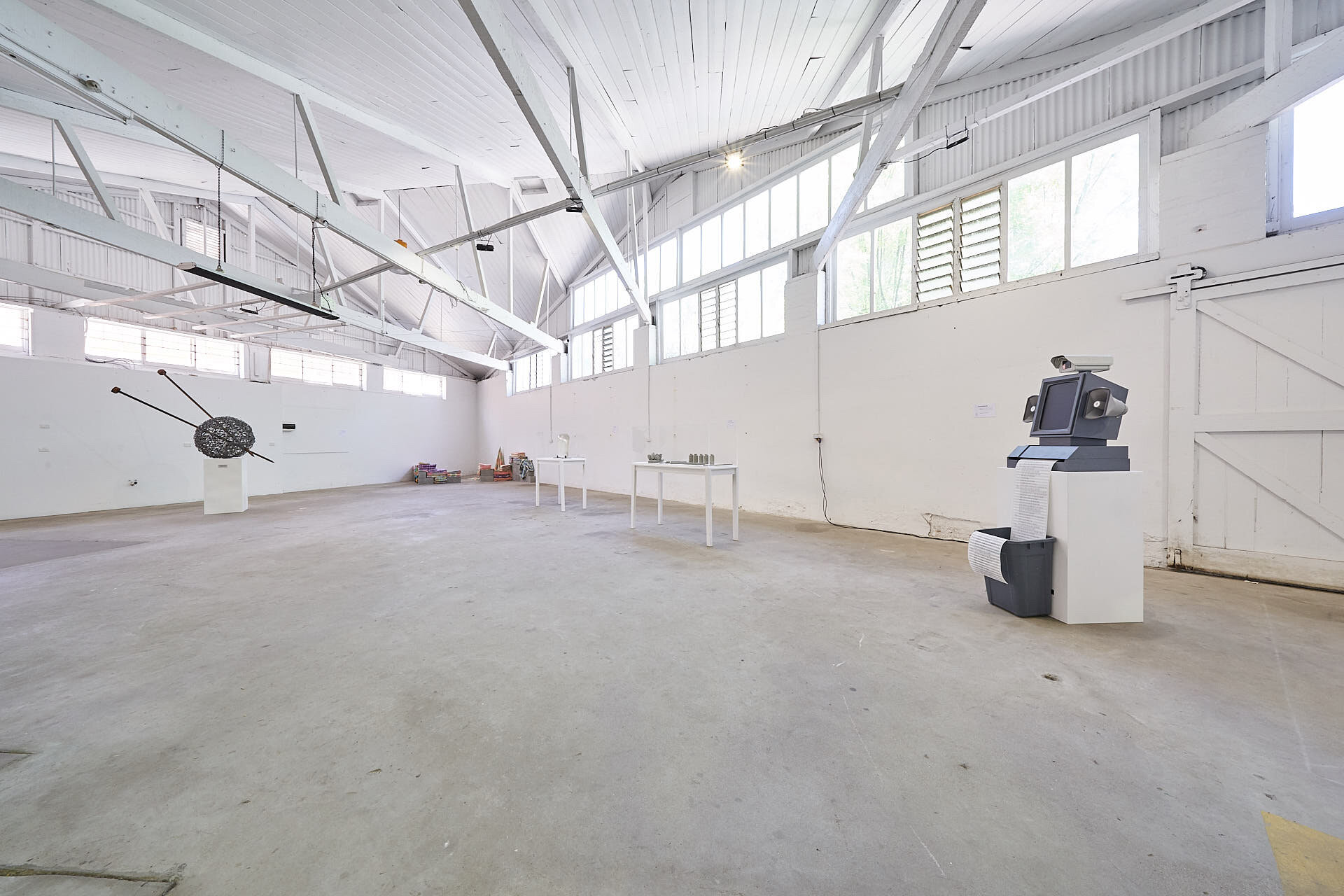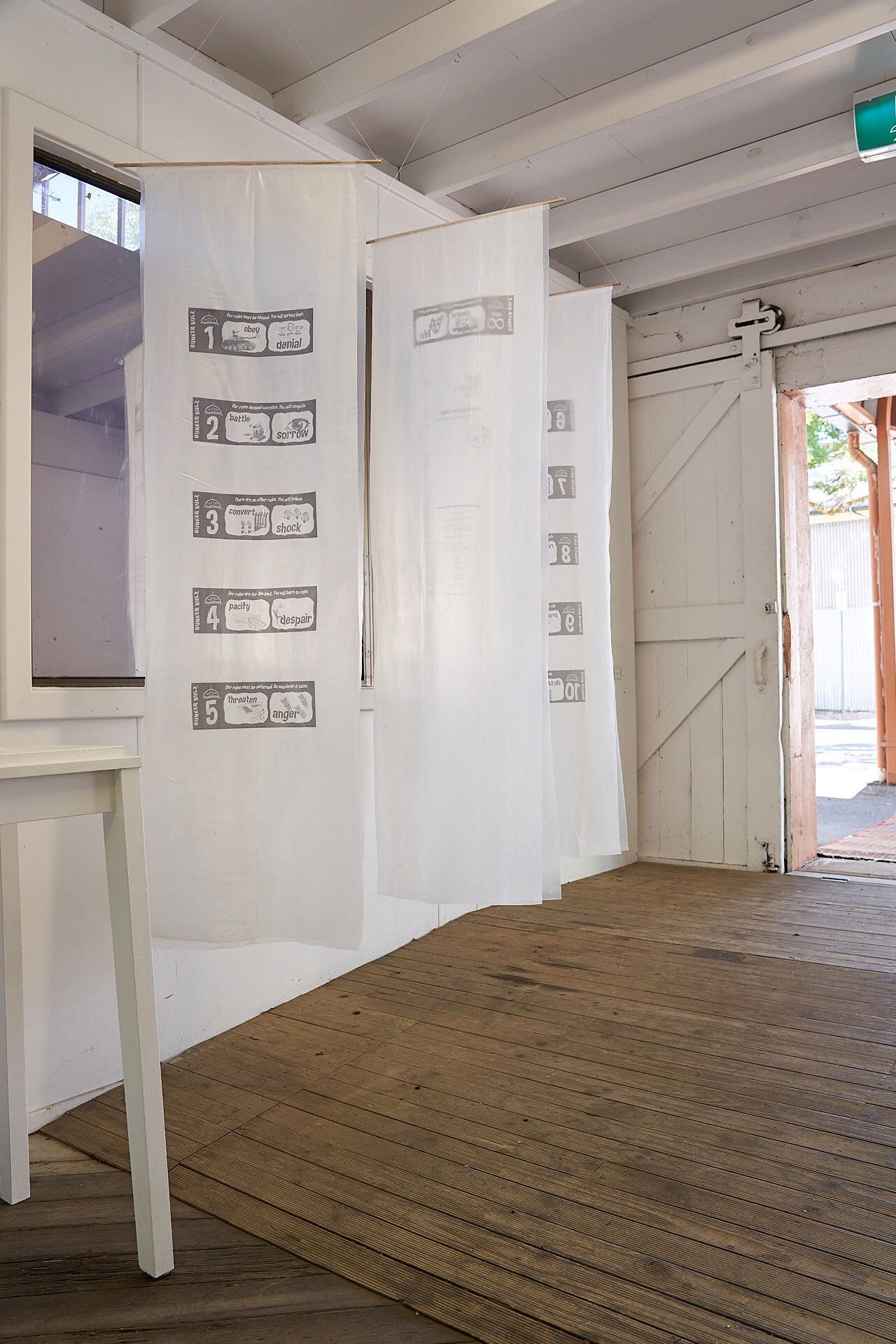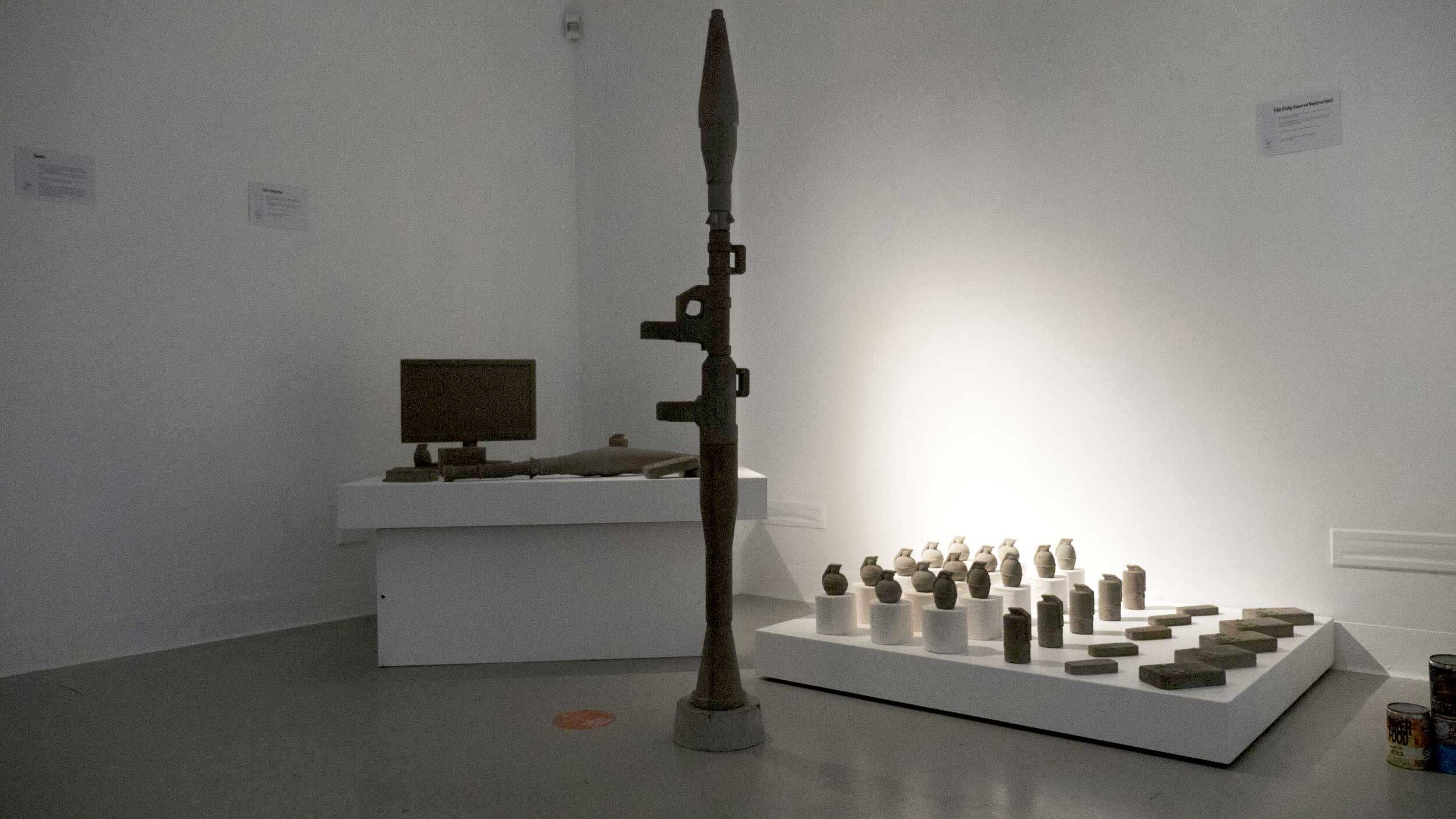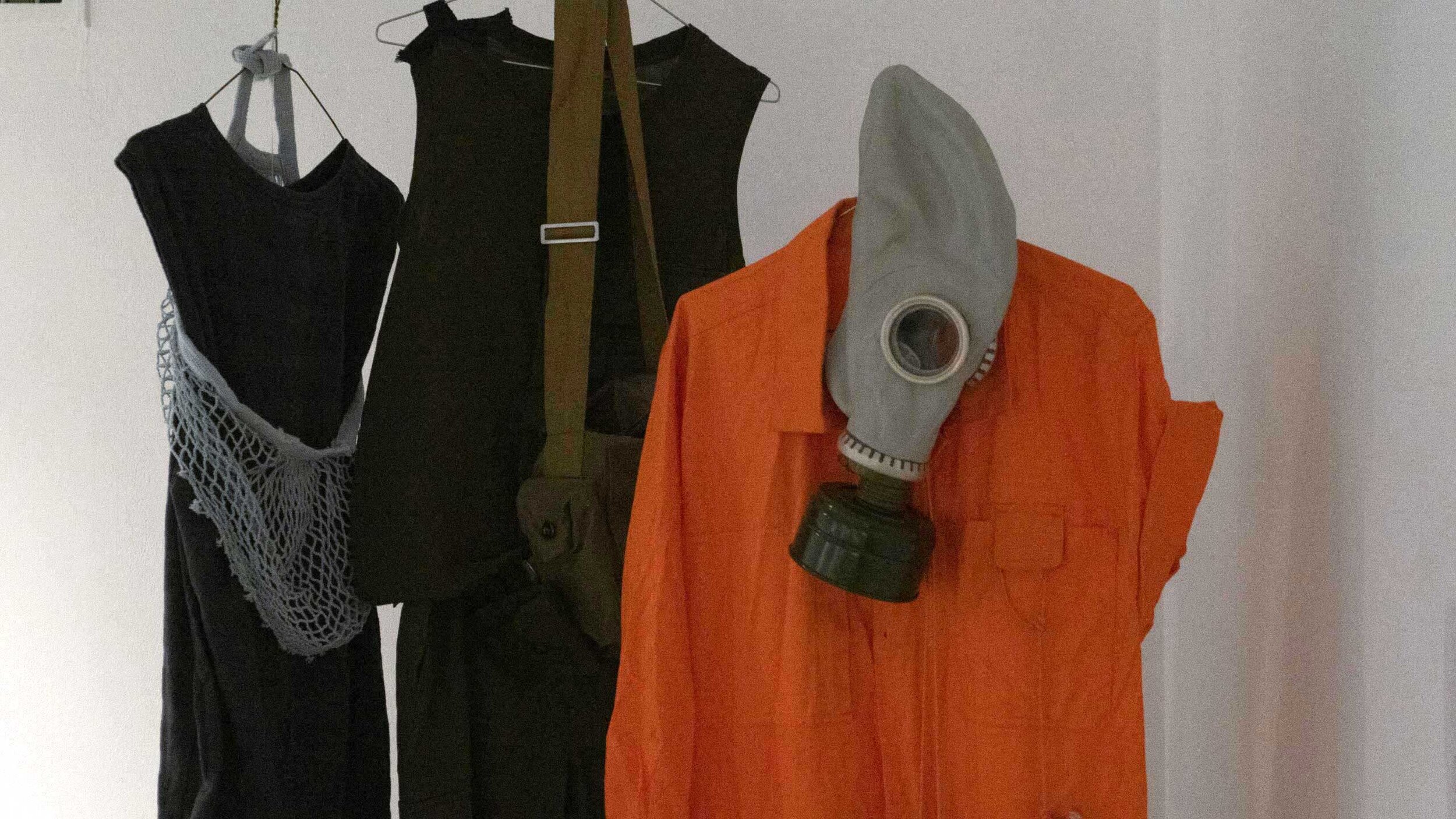Bunker Rulz 10: Dictate revolution. The unknown is chaotic yet we believe we can stay the same. The Colony demands the majority follow a few ‘born’ leaders – this concentration of nepotistic lobbying, kleptocracy and corruption results in a failure of democratic governance, climate crisis and societal collapse.
Revolution describes a turning process, an eternal change. Yet it has become a dirty word unless you are living it in war zones like Rojava, Syria or Chiapas, Mexico. Revolutions are always taking place, and instantly attacked on multiple fronts, squashed, so we don’t get our hopes up, that other worlds are possible, now and here.
The privileged don’t need to see outside the foggy myth that this is the best of all possible worlds, the end of history, as long as it benefits them. And as we toss and turn, rebellion is orchestrated by authoritarian populists sharpening their pitch forks on our manipulated grief.
Where borrowed states of peace still cushion our restlessness, we slumber in sweet dreams of justice and revenge, while supremacy thinking determines the outcome of our revolutions, turning our cosmic wheel into a brutal machine of predictability.
Algorithms of unrest and revolt take our temperature with our ever-extended permission, stealing our data to measure parameters of reform that will keep us from boiling. Boltholes and bunkers are cool again, homesteading is on trend - we all have become preppers. Or is this our time to revolt?
Who if not us? When if not now? Where if not here?
What does collective change look like?
How do we embrace life in a culture of war? Who benefits from the myth that greed and domination are our only, natural way to live? How do we get out of the bunker mentality and create order without oppression? How can we nurture joyful rebellion?
What future do we imagine for our shared world?
Bunker Essentials
This installation juxtaposes the desire for shelter and concrete living: A selection of future artifacts depict our addiction to all things concrete. Absurd video shrines are entombed in concrete, offering glimpses into a dystopian future, or is it now?
Welcome to the bunker.
Provocateurs corner: We think concrete is the foundation of modernity at war with life itself: Bunker Essentials is a multi-art installation by Jen Lyons-Reid, Carl Kuddell and Felix Weber, that juxtaposes the desire for shelter and entombment. An archaeological dig has uncovered cultural artefacts on the blue planet that depict our relentless deification of our thoughts. Ten absurd shrines to supremacy thinking are set in concrete, offering glimpses into a dystopian now to explore our addiction to death, not life.
Excavation of layers of human toil have unearthed 10 Bunker Rulz, a mental blueprint for all social interactions that led to the entrapment of entire cultures and near eradication of sentient life forms. This excavation explores the allure and devastation of concrete, to interrogate our obsession with industrial perfection and nostalgic sentiments for a happy normality that never was.
Archeological notes attempt to decipher the delusional mythologies, oppressive beliefs and stupefying grief of this time. What were they thinking? Who benefits from the myth that greed and domination are our only, natural way to live? How do we embrace life in a culture of war? How do we get out of the bunker mentality and create order without oppression? How can we nurture joyful rebellion?
Dictate Revolution is a conundrum we pose to confront our human exceptionalism, that claims the right to dominate the universe. From social Darwinist survival-of-the-fittest battles to progress-at-all-costs ideologies, we are at war with life. On the other hand, our scientific and origin myths are human-made stories that encourage us to imagine we can control chaos and survive the escalating global crises. Against this apocalyptic onslaught, Bunker Essentials is a crumbling memorial to supremacy thinking and challenges us to live, now.
Cycles - Johanis Lyons-Reid (filmmaker)
Cycles is a video installation responding to our collective grief and loss for a way of life, a planet, and a future imagined that will never be seen. Cycles is built around ten imagined stages of grief, with surreal visual representations of each. Apocalyptic vignettes reflect on the mundane horrors of living on the other side of catastrophe, and an inability to contextualise life-shattering change.
Early on the idea of playing with time, and slowing moments down to infinitesimal blocks became very alluring. There was also a desire to play with elemental materials, as a newly imagined pantheon of elements. In a concrete tomb on a decimated planet powdered milk and toilet paper are more central to our existence than trees and running water. Cycles is at its heart a short film, which portrays a diversity of experience through a collaborative filmmaking process, inviting ideas from cast and crew to represent a multitude of apocalyptic narratives. Cycles explores ideas of liminality, and how quickly the mundane can become horrific.
I was inspired to be a part of ‘_this breath is not mine to keep’ because I found the idea of grieving for our planet both absurd and deeply unsettling. It captures the heart of a global anxiety, that something we take for granted is changing and will be lost within our lifetime. That we may be watching our own demise with apathetic disinterest, and when our denial finally turns to shock it will be too late to make a difference.
Cycles - Justin Pounsett (sound designer)
I was drawn and keen to contribute to ‘_this breath is not mine to keep’, because of the scope, breadth and diversity of all the works - but mainly because of the urgent and pertinent nature of its overarching narrative. The notion that we might ‘grieve’ our own annihilation is clearly absurd, but unsettlingly real. How this is reflected and communicated through the soundscapes we produced was extremely engaging. An open brief can often be tricky to navigate, but working closely with Johanis and his clarity with his visual content makes the process far more fluid and focused.
Early on in the process of producing ‘Cycles’ the clear path of using the ultra-slow motion vision to create unsettling soundscapes was obvious. Either hyper-realistic or stylised was yet to be seen. The breakdown of brief moments in time into agonising visceral sequences allows the soundscape to be broken into intricate layers that are always hidden to us. The physical nature of slowing down sound naturally creates the typical, almost demonic low pitched tones and textures. These are always instantly unsettling and foreign to us. How Johanis explained it as “how the quickly mundane can become horrific”, I think is elegant.
The opportunity to craft something unique presented itself in creating textures outside of these frequencies and tones, textures that wouldn’t naturally exist in this space. Layering more emotional information in the sonic space gave it much more impact and interest.
What I love about slowing down these moments in time so much, is you are forced to think about, feel and ultimately engage or empathise with that exact moment in time. Some say that time might slow at the moment of our own individual demise - I think there is something very transcendental about that.
Creative concept, development and curators: Jen Lyons-Reid & Carl Kuddell
Installations: Jen Lyons-Reid, Carl Kuddell, Felix Weber, Emma Hough Hobbs
Video art: Cycles - Crew and Cast
Writer/Director/DoP/Editor: Johanis Lyons-Reid
Producers: Piri Eddy, Jen Lyons-Reid & Carl Kuddell
Art Department: Emma Hough Hobbs
Grip: Tim Carlier
Cast: Benjamin Tamba and Jamila Main
Poetry: Poets tba
Photos: Change Media
Venues: Nexus Arts Gallery Adelaide, and you can spot some of the concrete works across all our venues.
